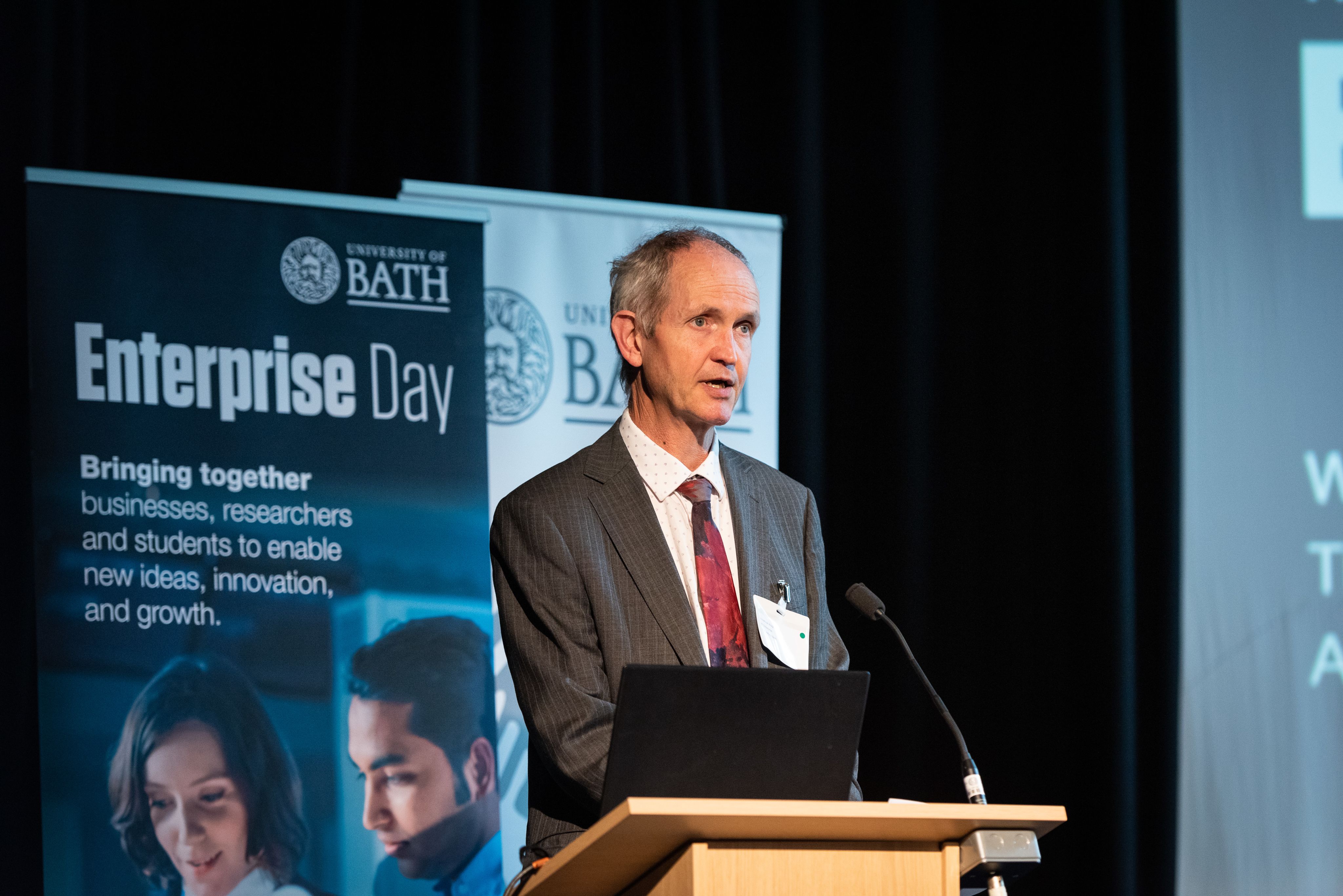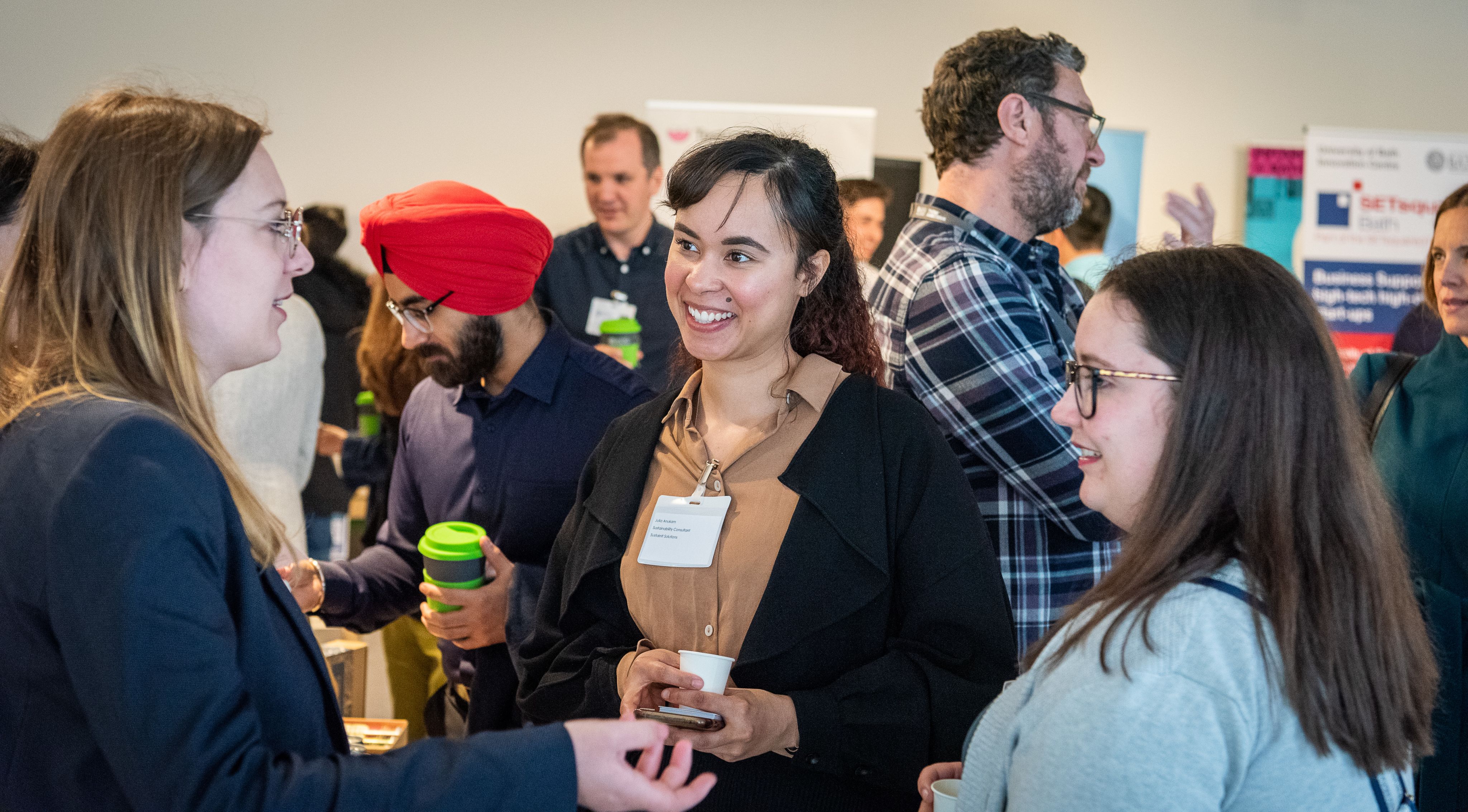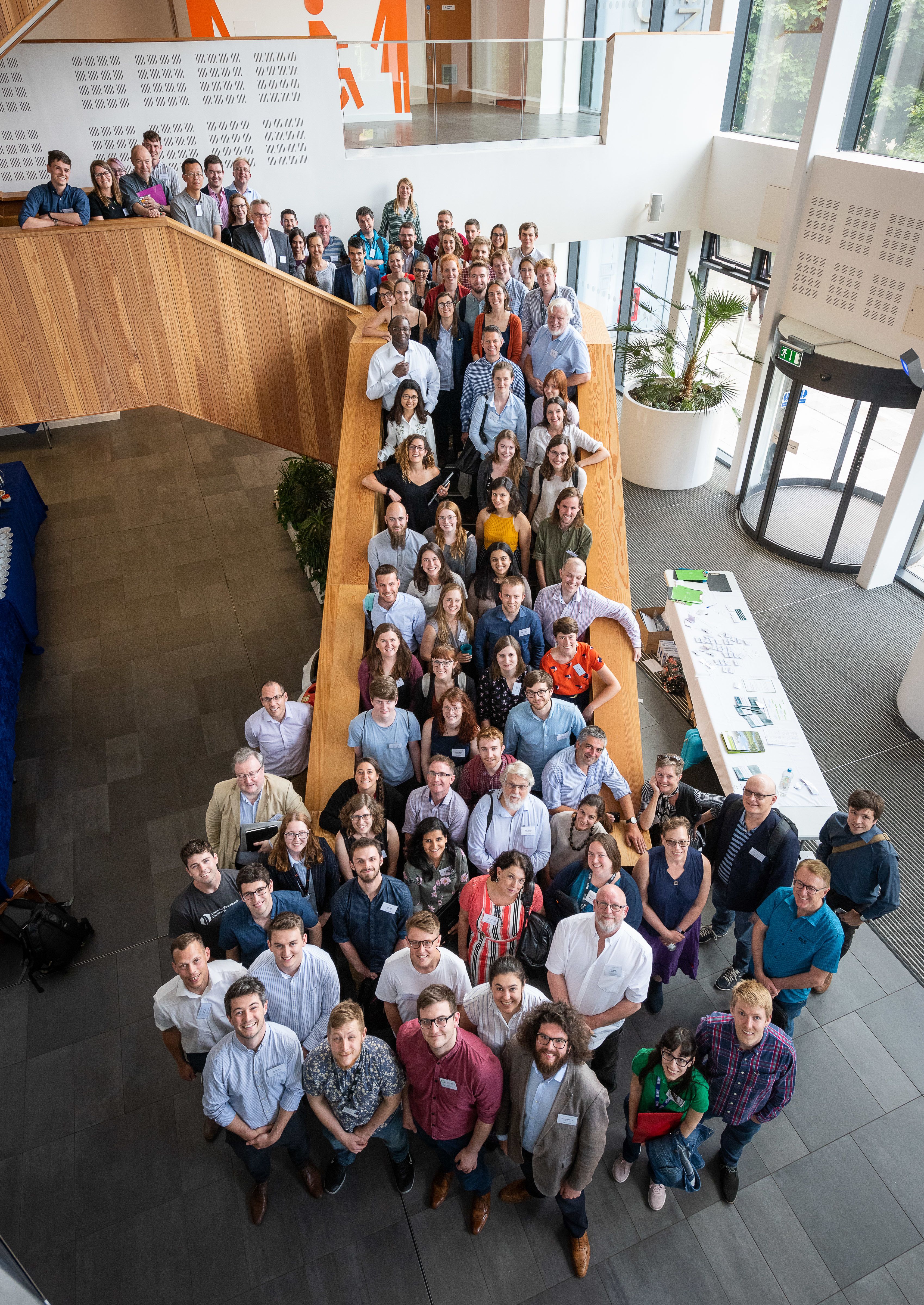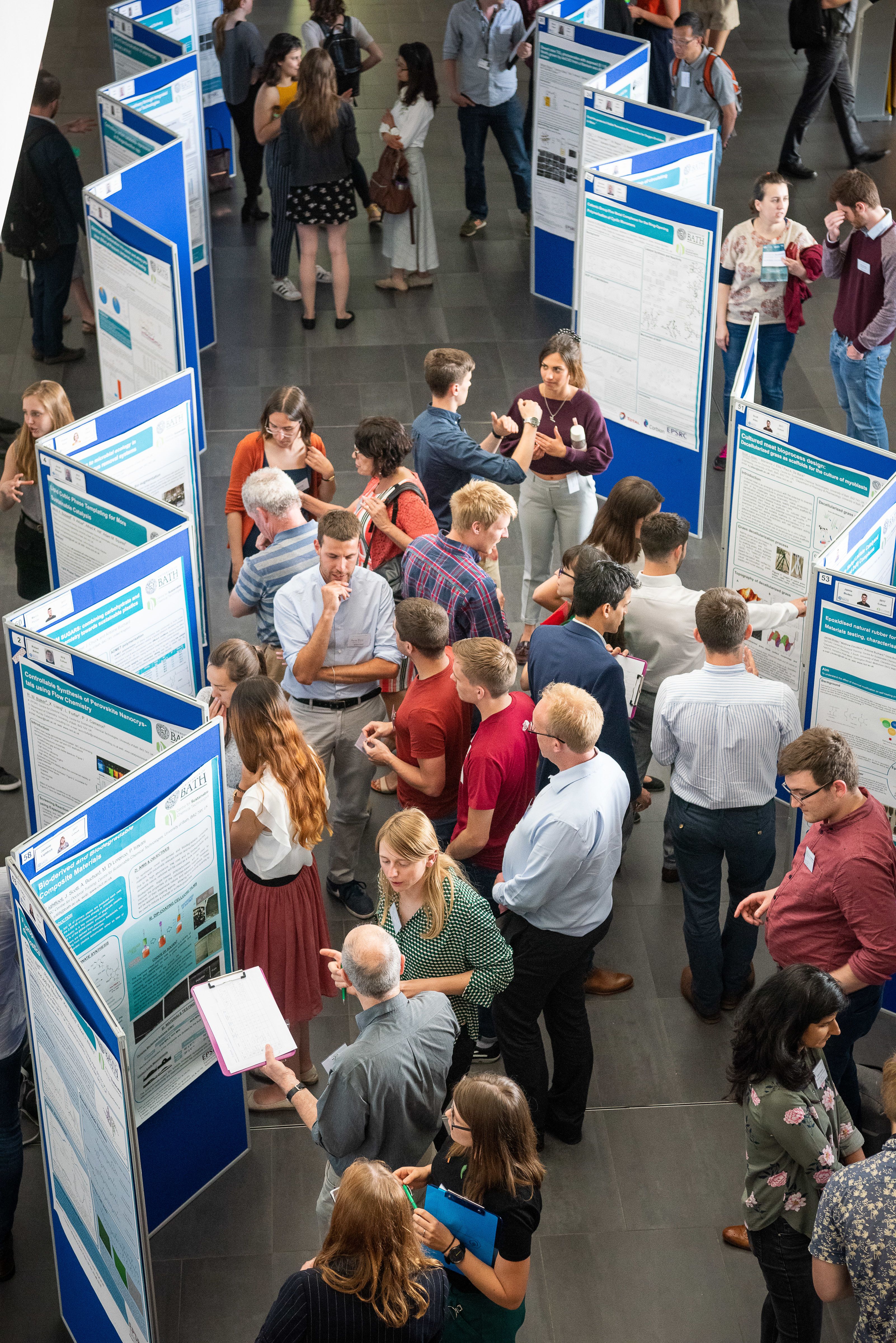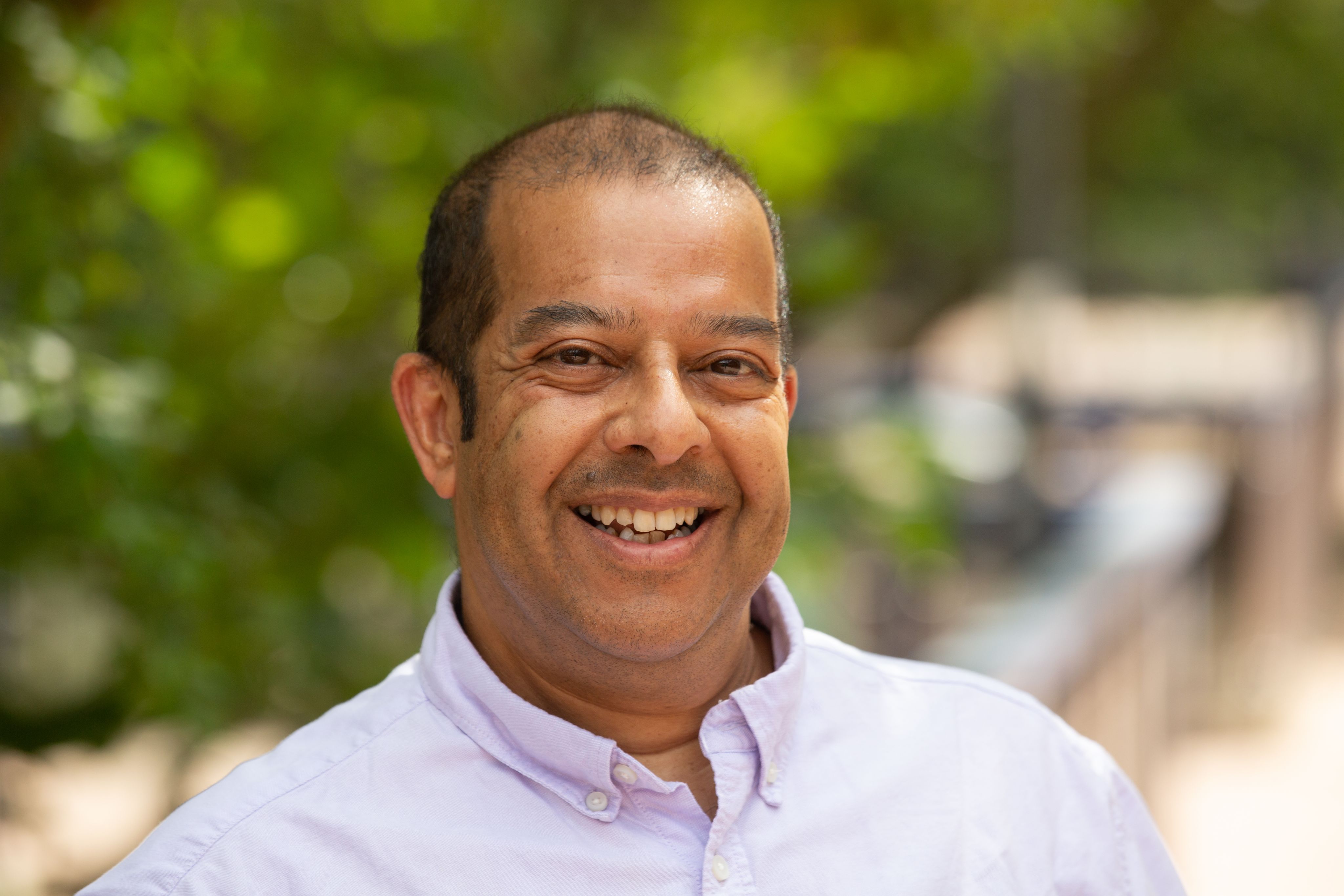Annual
Overview 2021/22
Highlights and key updates from the University of Bath in the academic year 2021/22

Vice-Chancellor's introduction
Foreword from Chair of Council
The four pillars of the University Strategy
In 2021 the University published its strategy for 2021 to 2026, setting out four pillars to drive collective activity.
The University has evolved considerably since 1966, when it was established to advance learning and knowledge by teaching and research, particularly in science and technology, and in close association with industry and commerce. More than 50 years on, we are proud to have grown in size and reputation, and rank in the top 10 in all three main national league tables.
As a 'dual intensive' University, we equally value teaching and research as core strengths and these continue to be at the heart of our strategy.
The four pillars are:
Driving excellence in education
We will grow our reputation for University education through internationally leading courses which are rigorous, relevant, and pioneering and which attract highly achieving students from diverse backgrounds. Courses will be enhanced by high-value placement and extracurricular opportunities to help students to take their ideas and passions to the next level.
Driving high-impact research
We will grow our research strength to drive research quality, achievement and impact at international levels. To strengthen further our research impact, sharpen our focus and increase our influence, we have identified three primary institutional research themes for collaborative working across disciplines: Sustainability; Health & Wellbeing; and Digital.
Fostering an outstanding and inclusive community
We will grow our identity as a strong learning community in which collective endeavour and a culture of care enable the flourishing of all.
Enhancing strategic partnerships
We will grow our strategic civic, corporate, and international partnerships to allow us to fulfil our ambitious vision in education, research, and enterprise. We will seek to enhance our global position within the top world-leading institutions.
Our strategy outlines the way in which our University is an energetic connected community, committed to excellence in research and education, embracing the opportunities of today’s world and addressing its challenges. Working together as a community to implement our strategy will be a key focus over the coming years.
Driving excellence in education
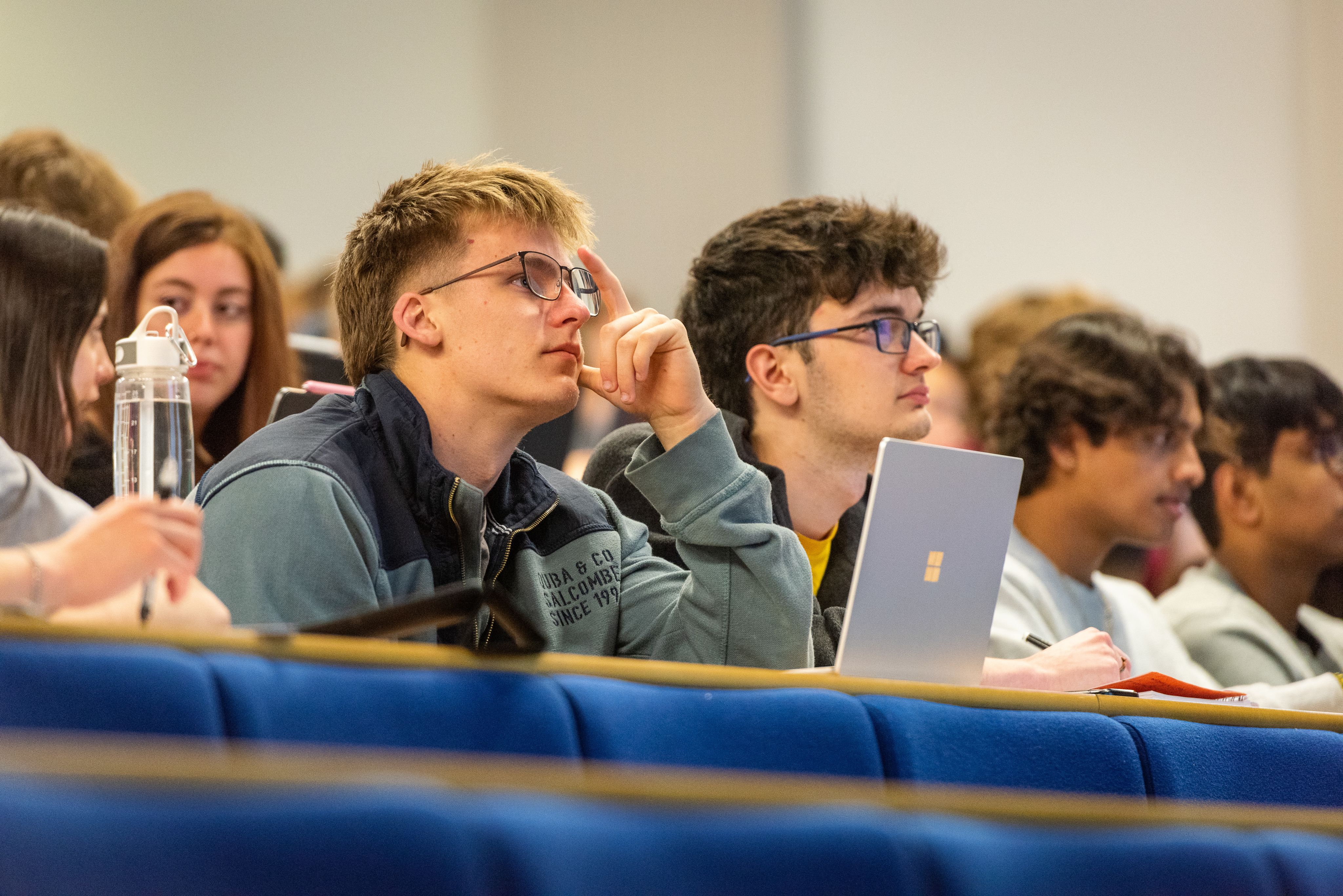
'University of the Year'
Bath was recognised for its strong performance across the board, being named 'University of the Year' by The Times and The Sunday Times Good University Guide 2023. The University was ranked fourth in the UK for undergraduate university experience and fifth for graduate prospects, coming eighth overall in the table.
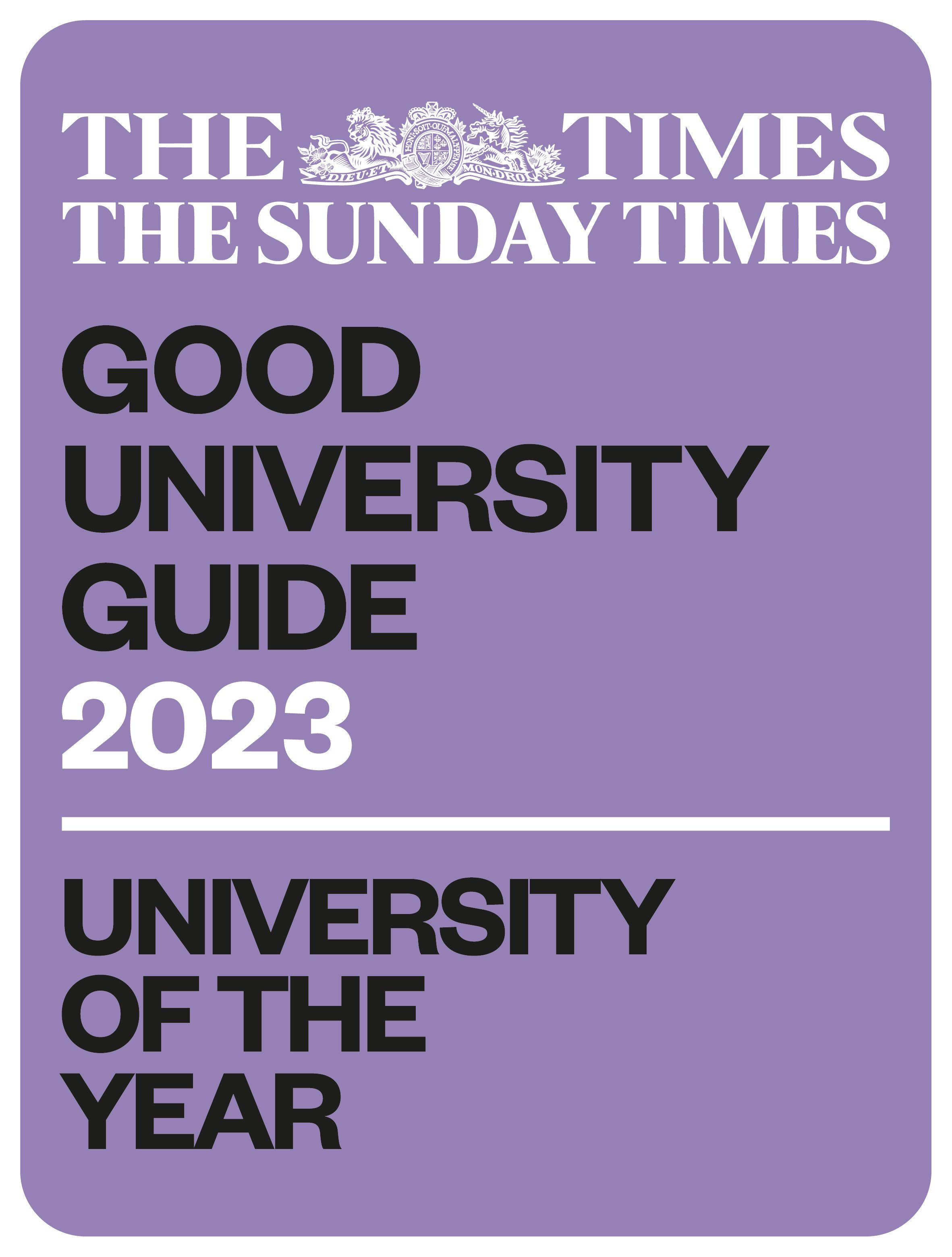
Scoring highly for student satisfaction
Our students also value highly the experience on offer at Bath, with the University retaining first place in England (third in the UK) for the second year running for the National Student Survey 2022, when comparing institutions listed in the Guardian University Guide.
Our students' overall satisfaction score of 86.31 per cent, more than ten percentage points greater than the median score of Universities UK members (75.63 per cent).
Top 10 in university league tables
The University continues to rank in the top 10 of all the main league tables, ranking 7th in the Guardian University Guide 2023, and 8th in both The Times and The Sunday Times Good University Guide 2023 and the Complete University Guide 2023.
Top 100 globally for employability
Our graduates continue to be highly sought after by employers, due to the strong emphasis on skills and employability, and high number of students undertaking work placements or study abroad as part of their course.
This year, the University was placed in the World Top 100 of the QS Graduate Employability Rankings 2022 and fifth in the UK for high-skilled employment outcomes by the Higher Education Statistics Agency (HESA) Graduate Outcomes Survey.
In the QS rankings, Bath was rated particularly strongly in terms of its partnerships and reputation among employers, with a graduate employment rate of 95.6 per cent 12 months after graduation.
Widening participation
We are working hard here in Bath to ensure we’re attracting the most diverse range of students possible. We selected 50 new Scholars for our unique Gold Scholarship Programme, supporting students from under-represented backgrounds. The Scholars logged 6,558 hours of volunteering in this year, also receiving a £5,000 bursary and an enrichment, mentoring and employability programme.
Open Days
In 2022, we were able to welcome back prospective students and their families onto campus for the first time since the start of the pandemic, holding open days in June and September.
An estimated 22,000 visitors over the three open days came to campus to watch talks, view accommodation and get information on the different courses on offer at Bath.
Celebrating graduation success
After two years of online events, it was fantastic to see our students graduate at Bath Abbey in the summer, with the opportunity to celebrate their achievements with friends and family.
As well as Winter Graduations at the University in December 2021, and Summer Graduations in July, ceremonies were also held at Bath Abbey in May and June 2022 to allow the classes of 2020 and 2021 to reunite and celebrate with their peers.
Honorary Degrees
Honorary degrees were awarded to 15 individuals this year, including world-leading vaccine scientist, Professor Dame Sarah Gilbert, Chief Digital Officer and Corporate Vice President at Microsoft, Dr Jacky Wright, and scientist & broadcaster Professor Alice Roberts.
Click on the photos in the gallery to read the orations.
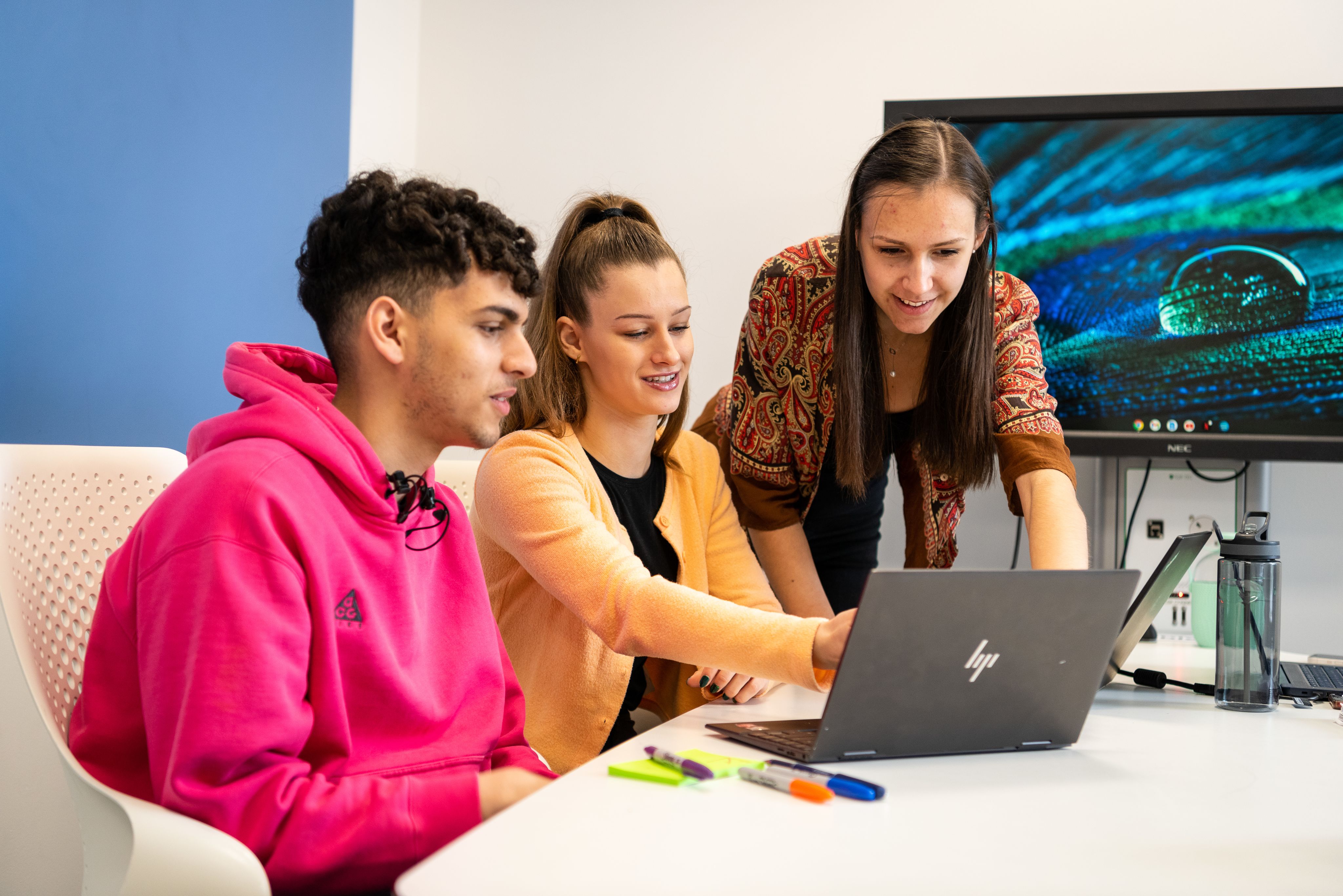
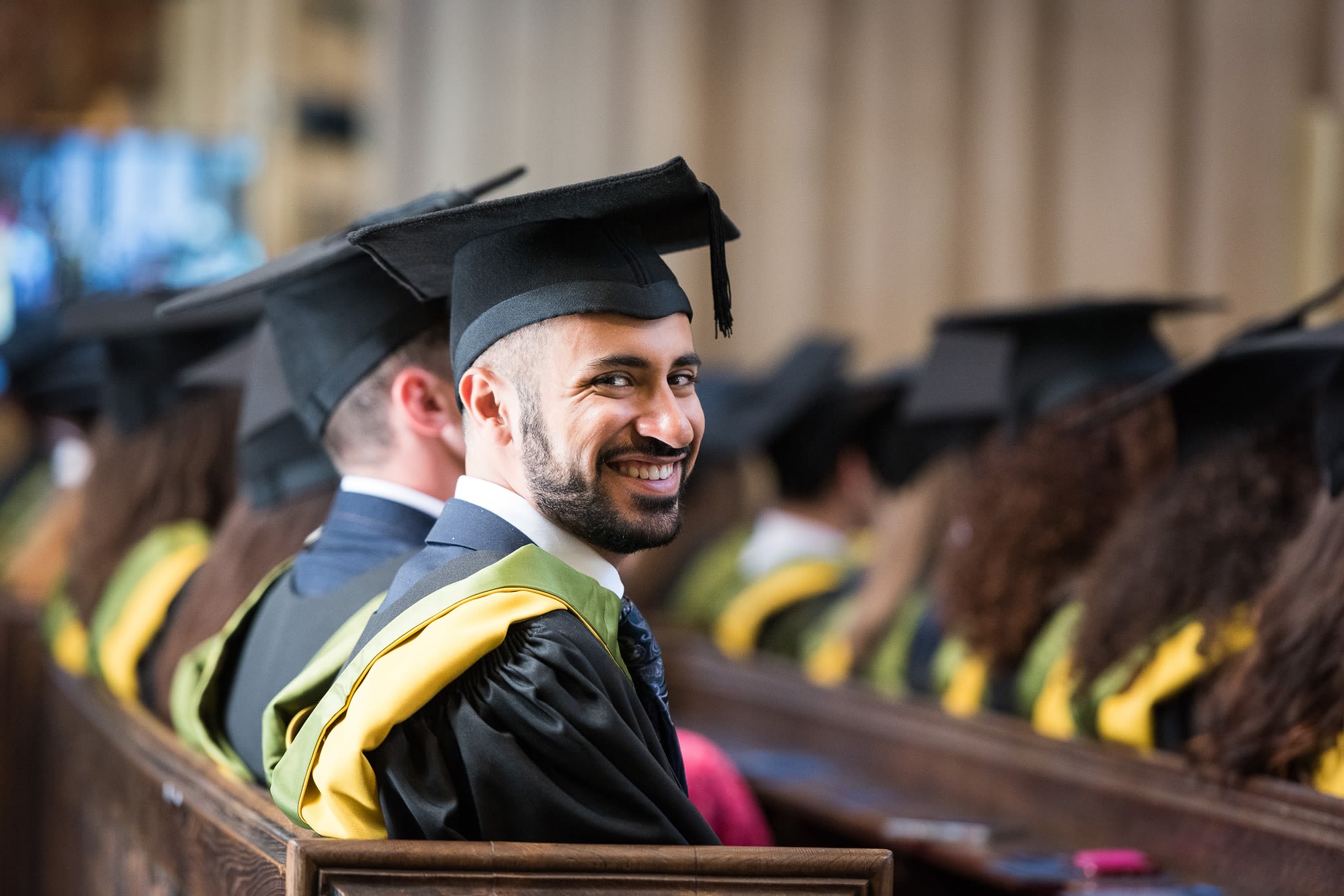
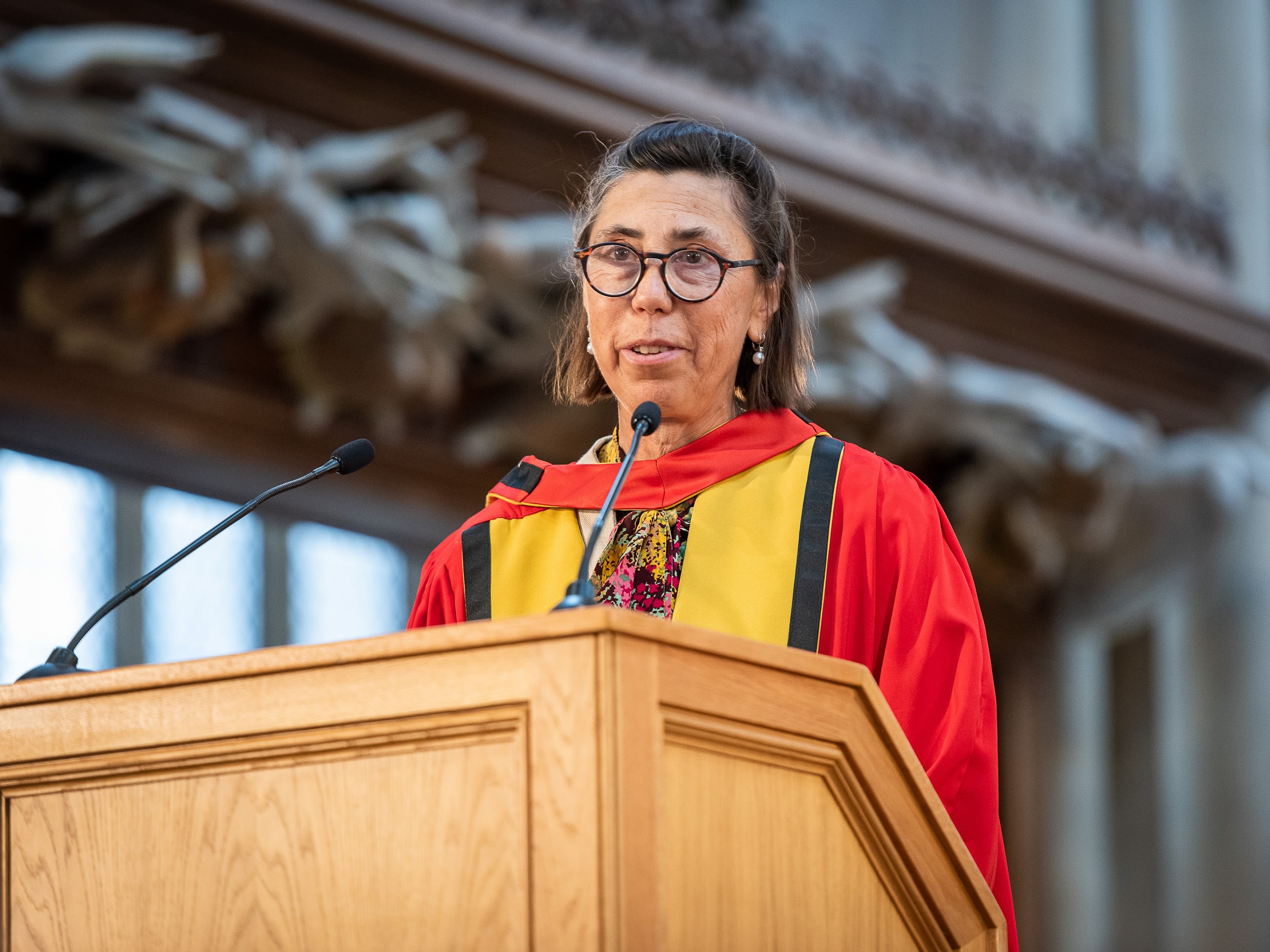
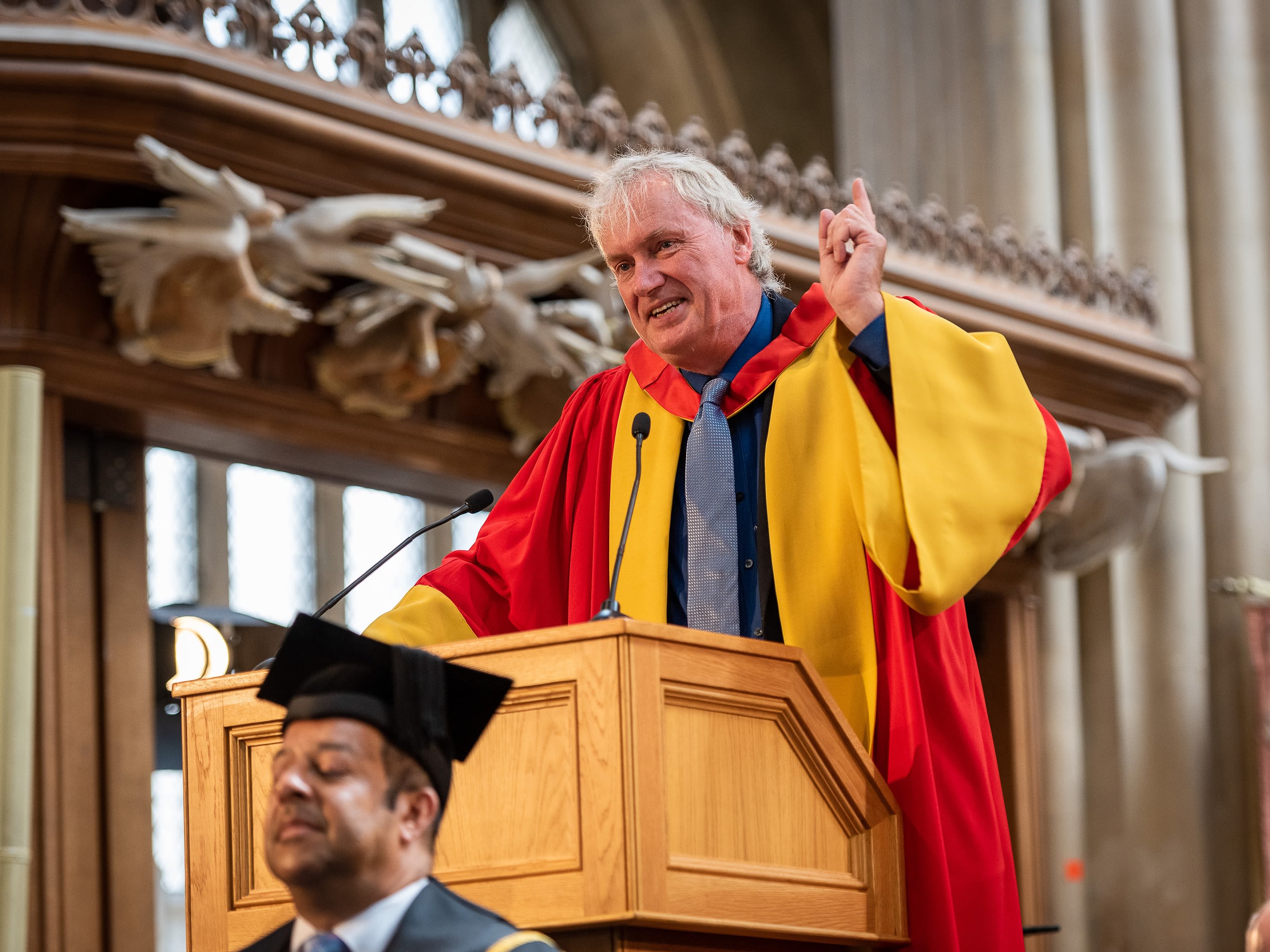
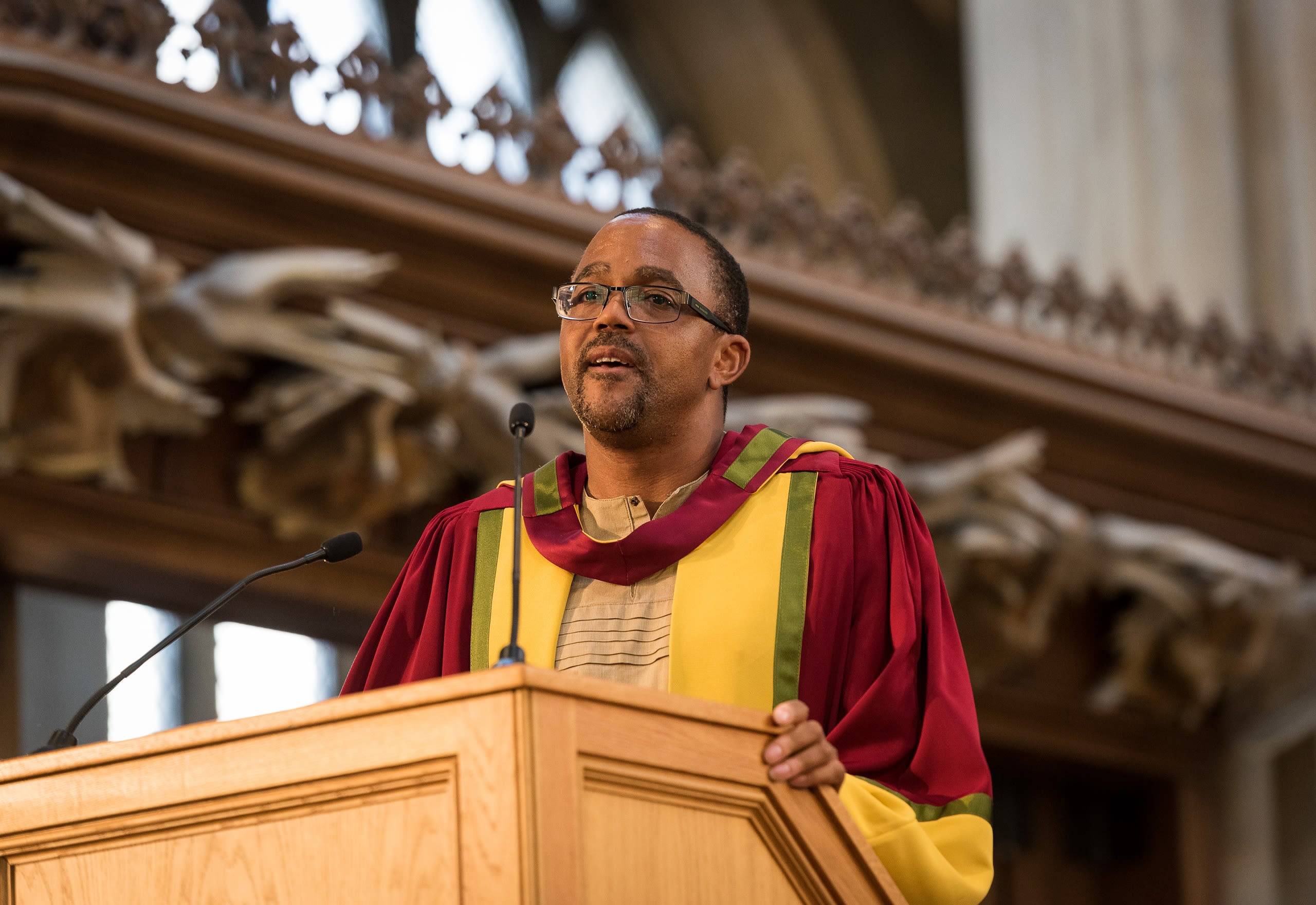
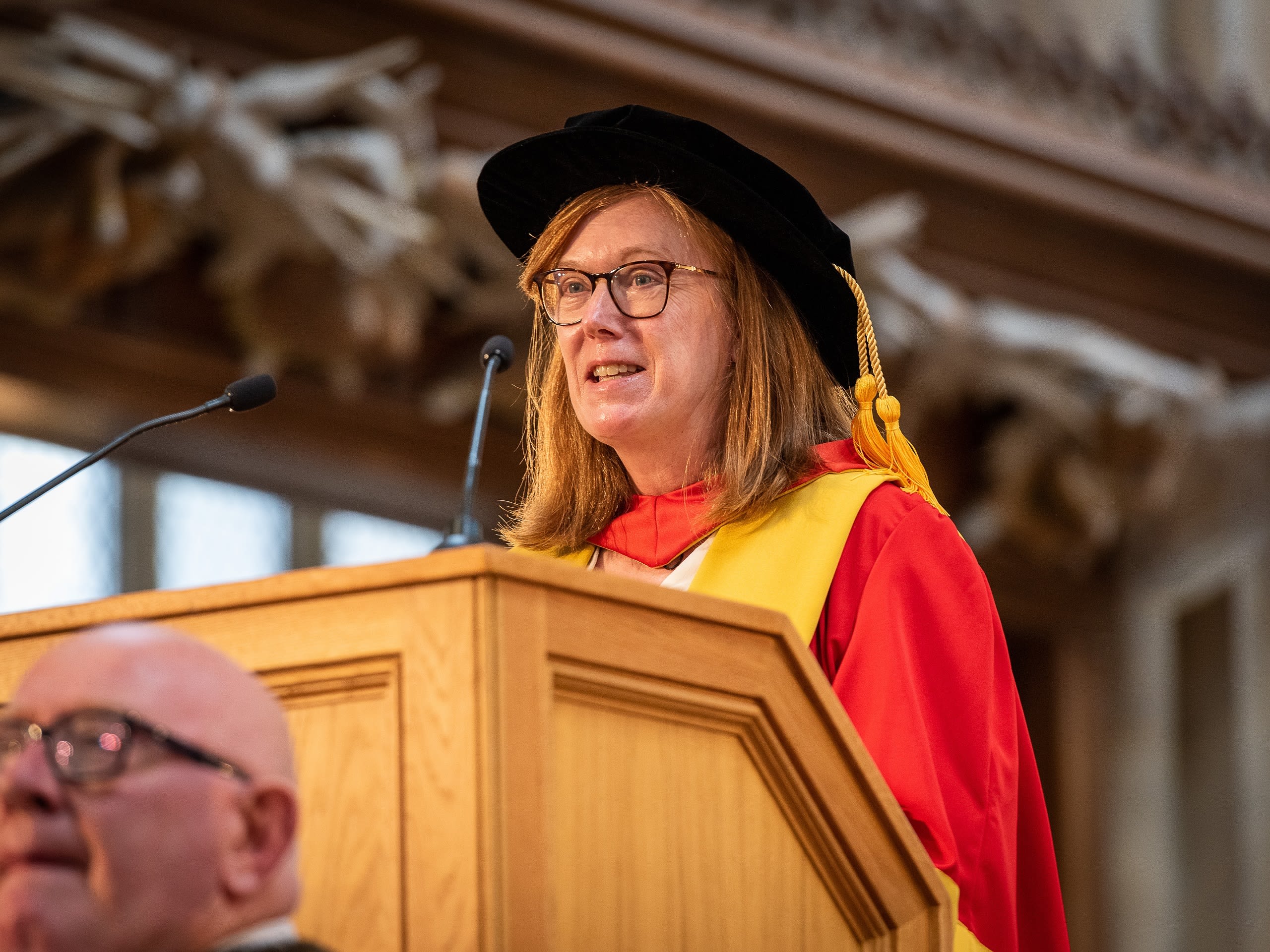
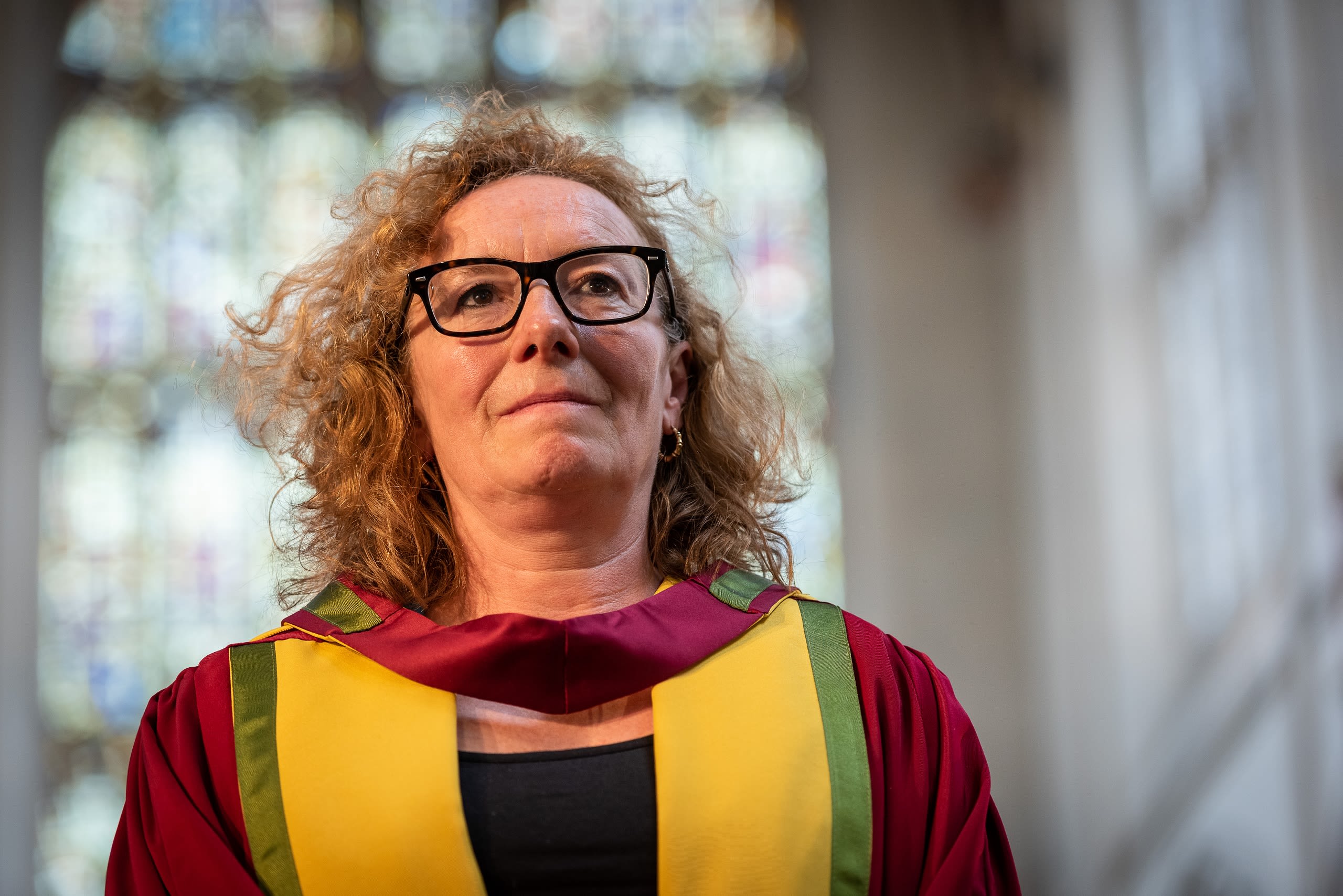
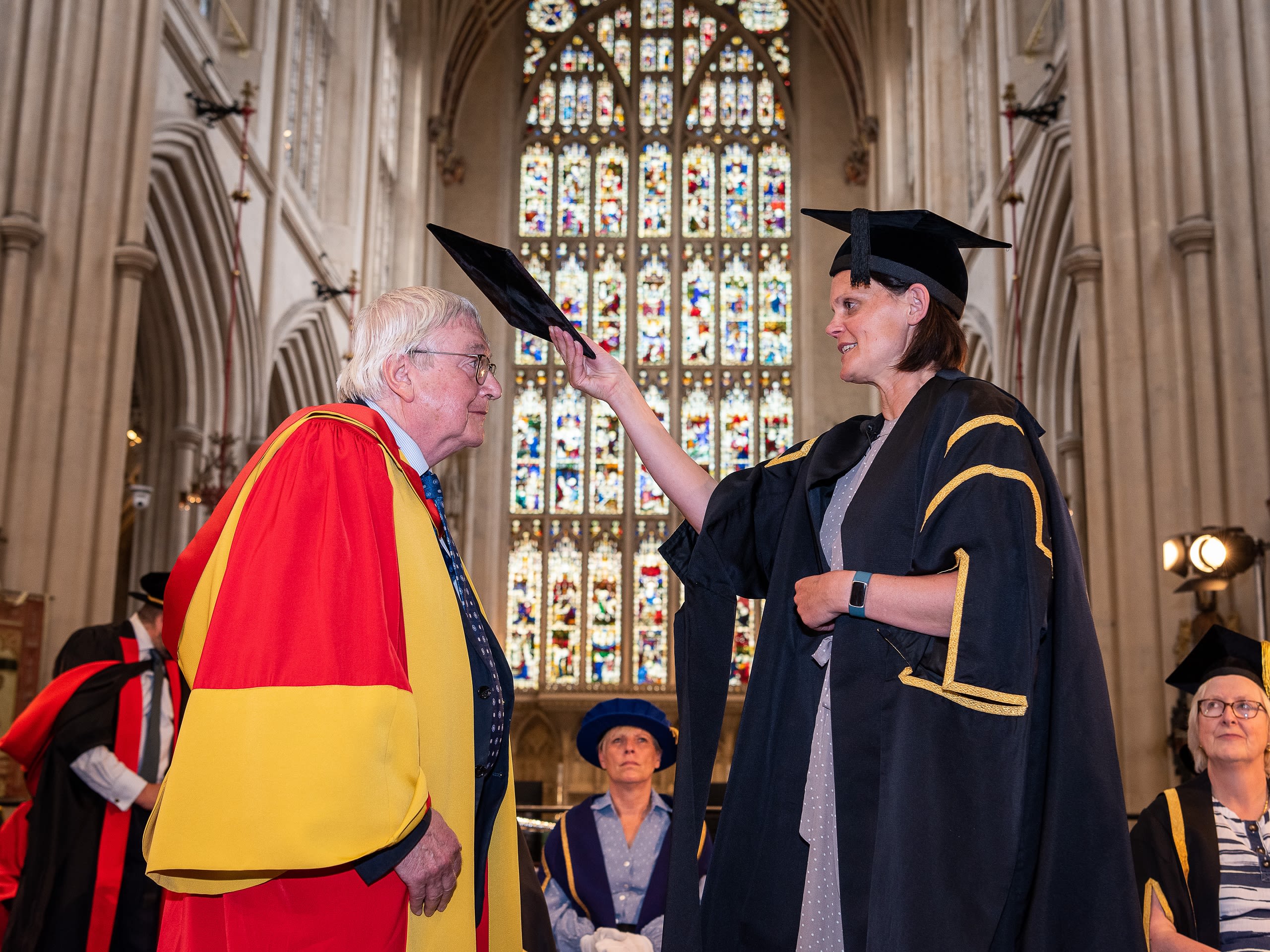
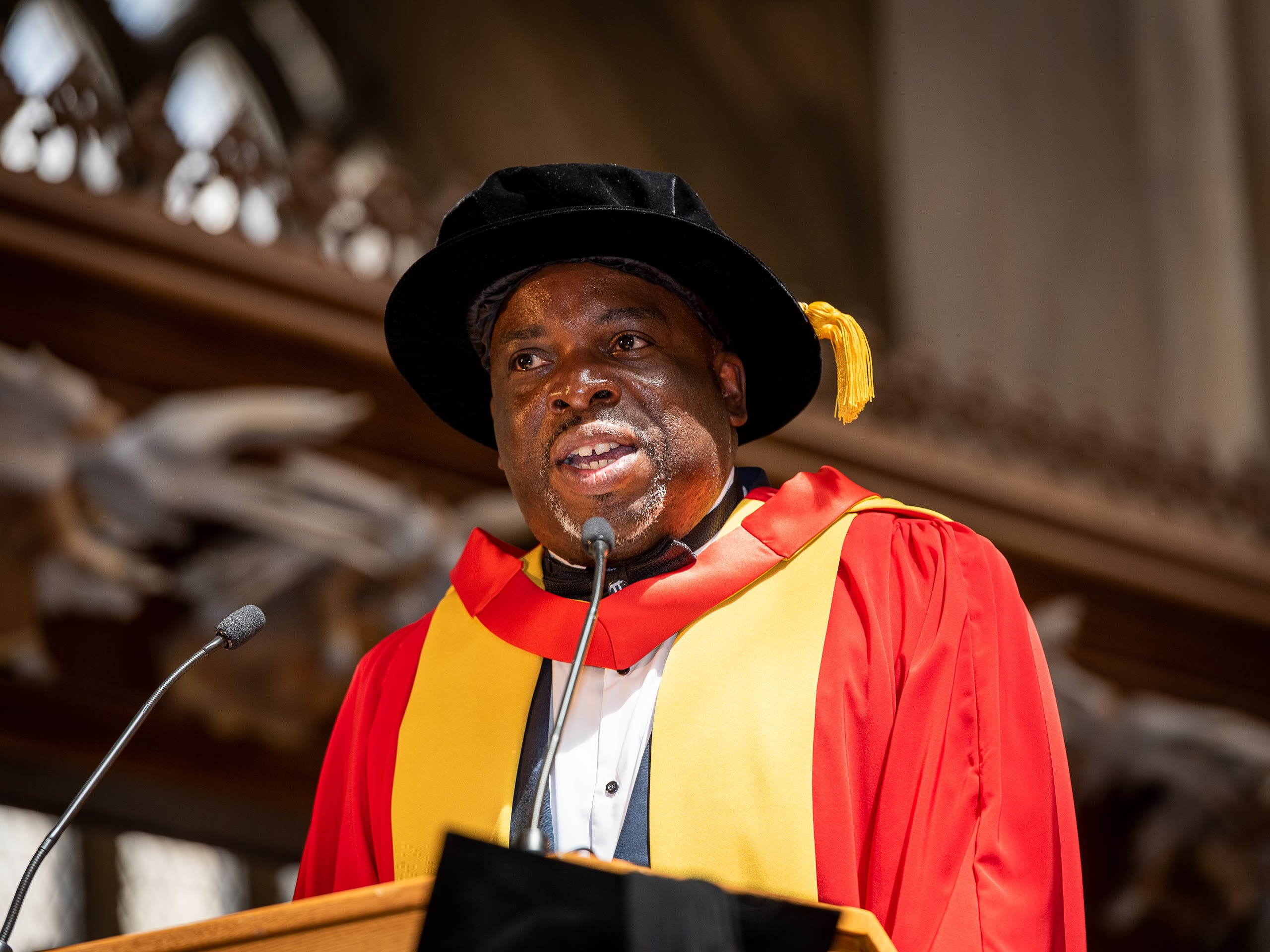
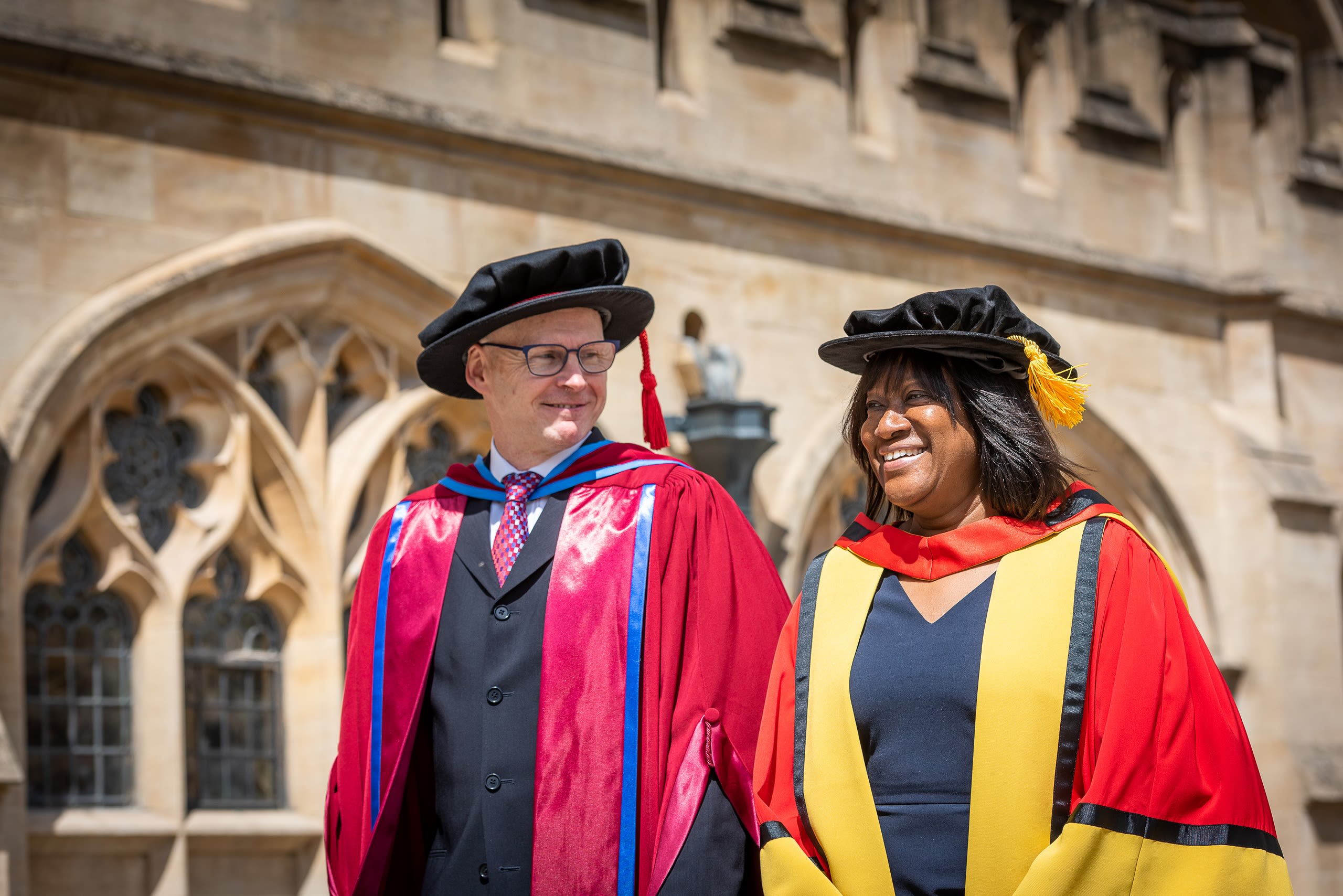
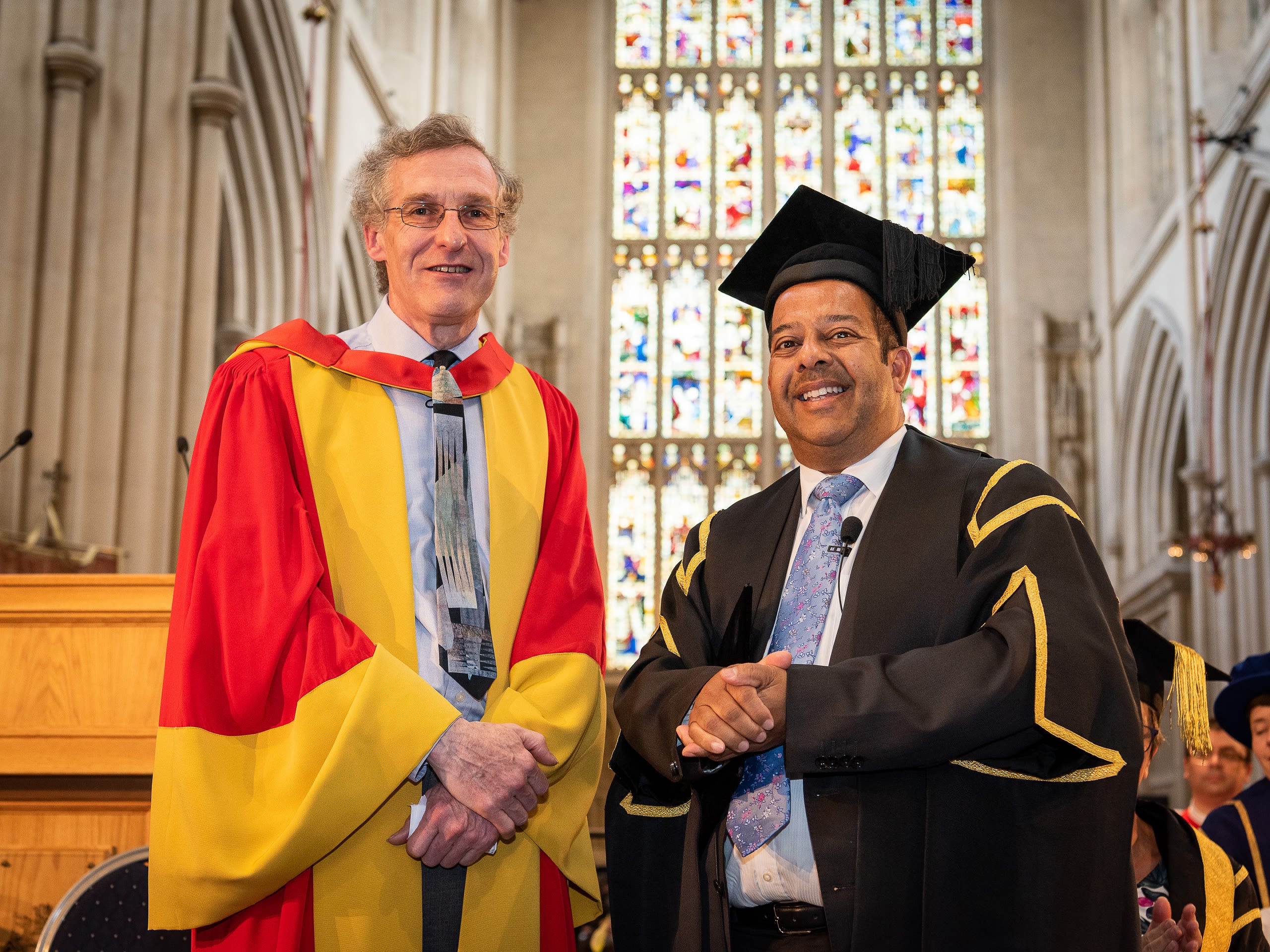
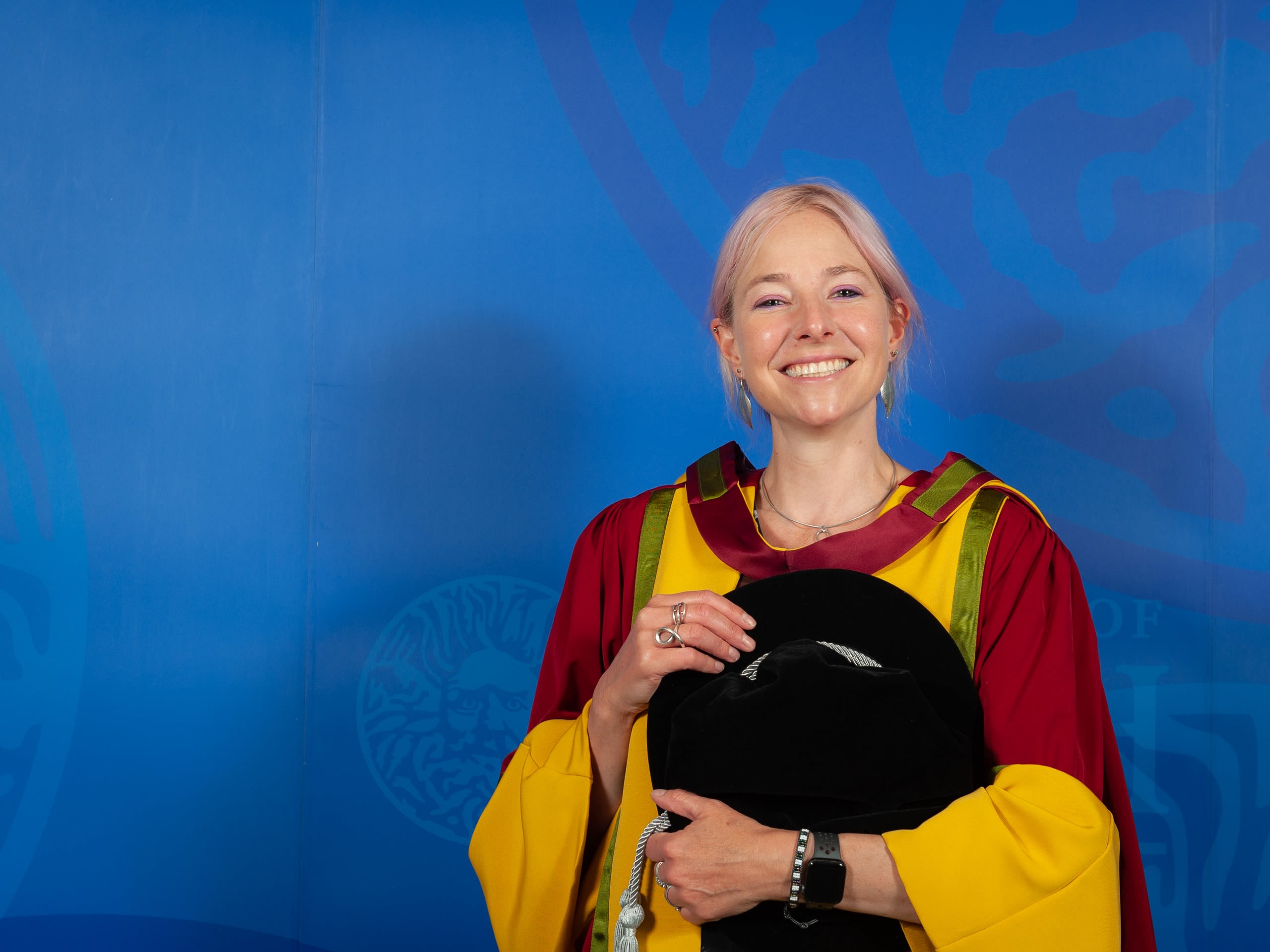
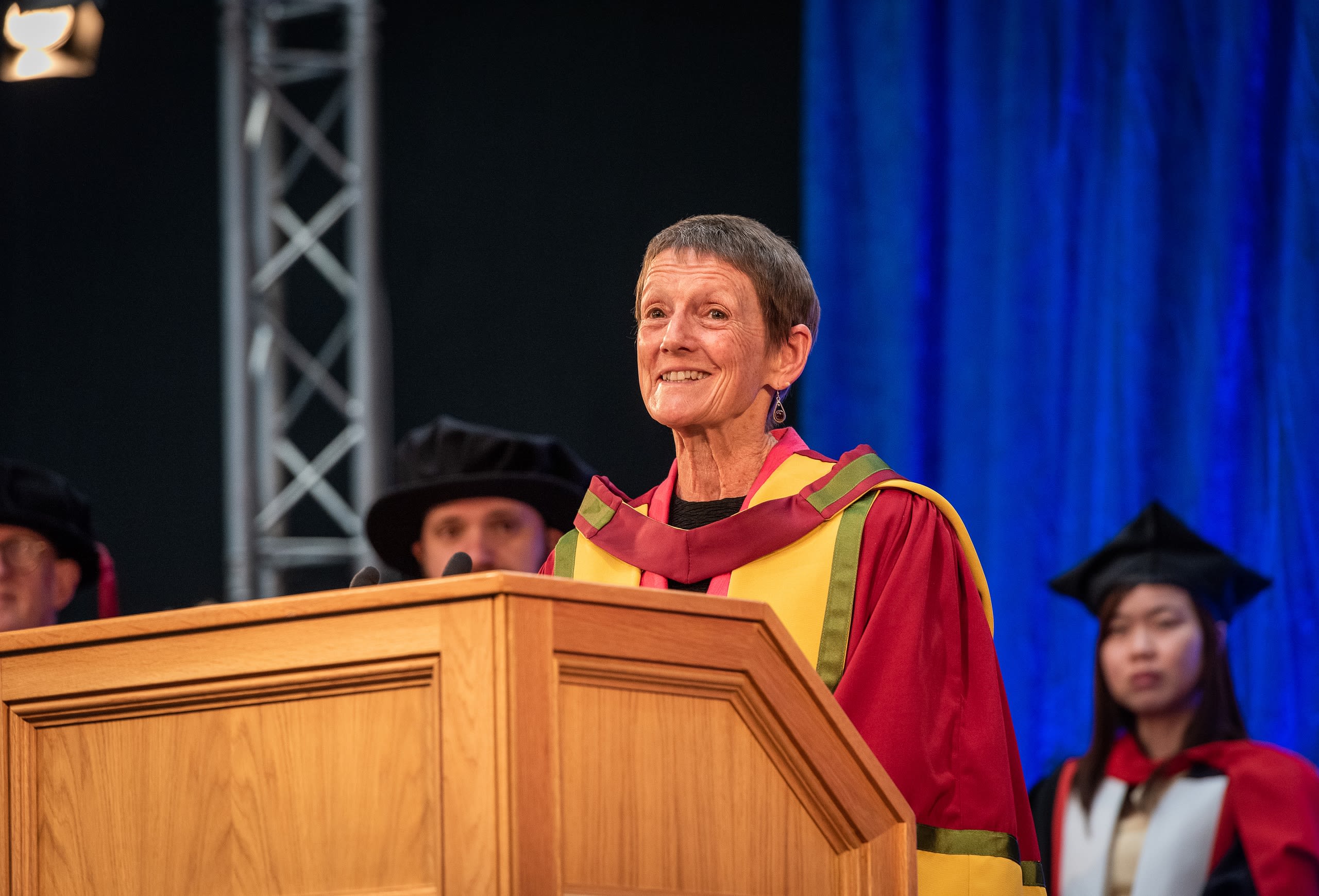
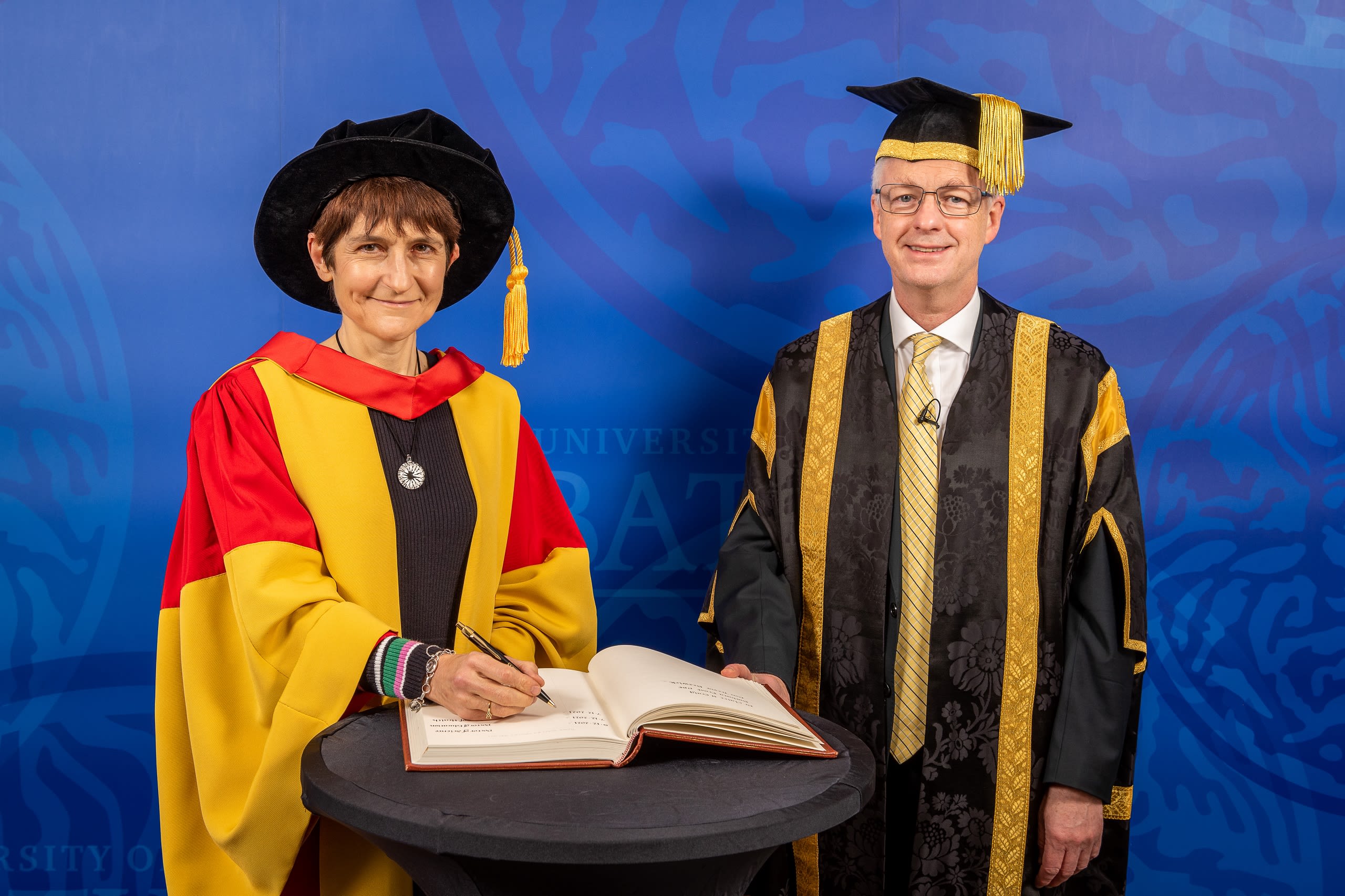
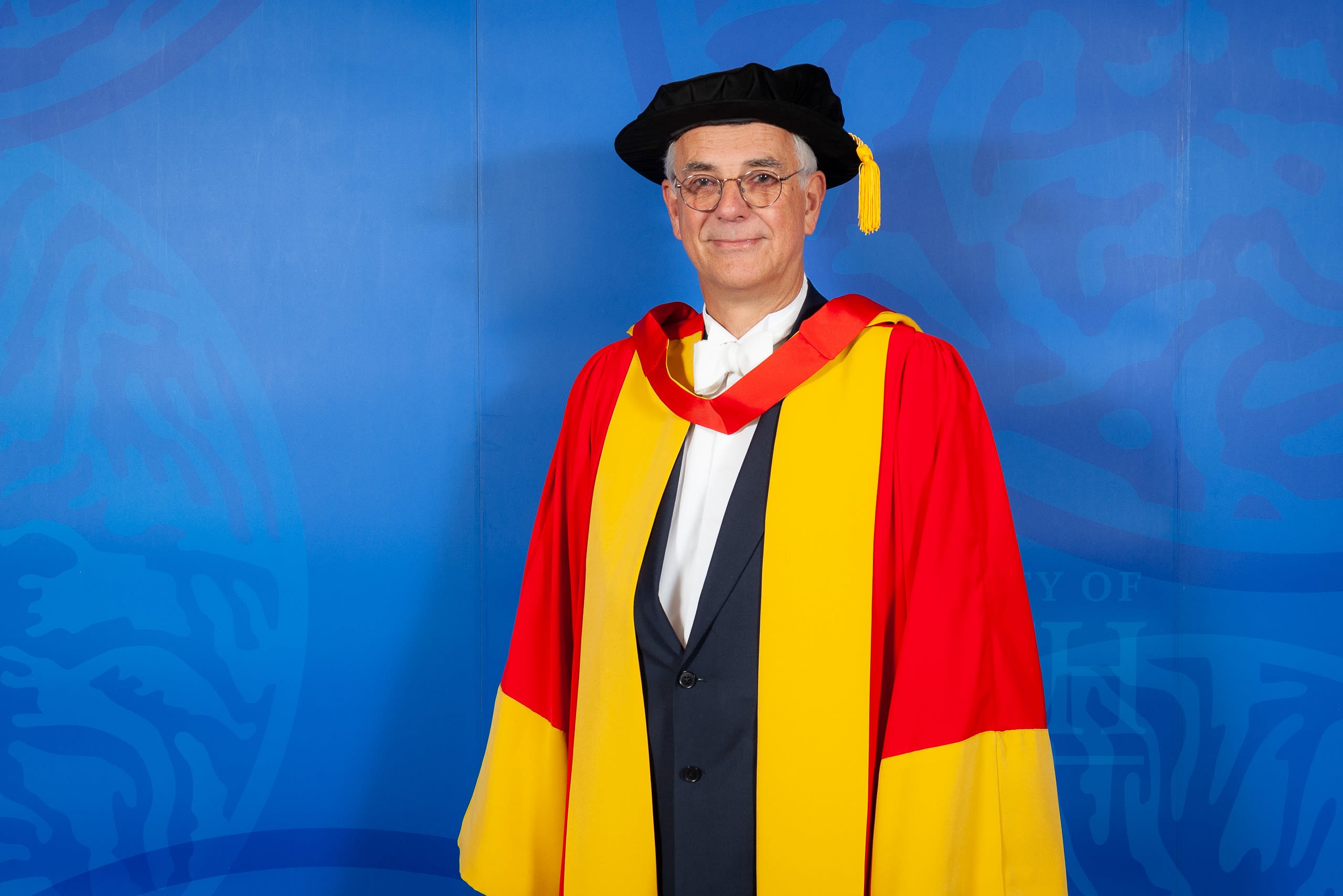
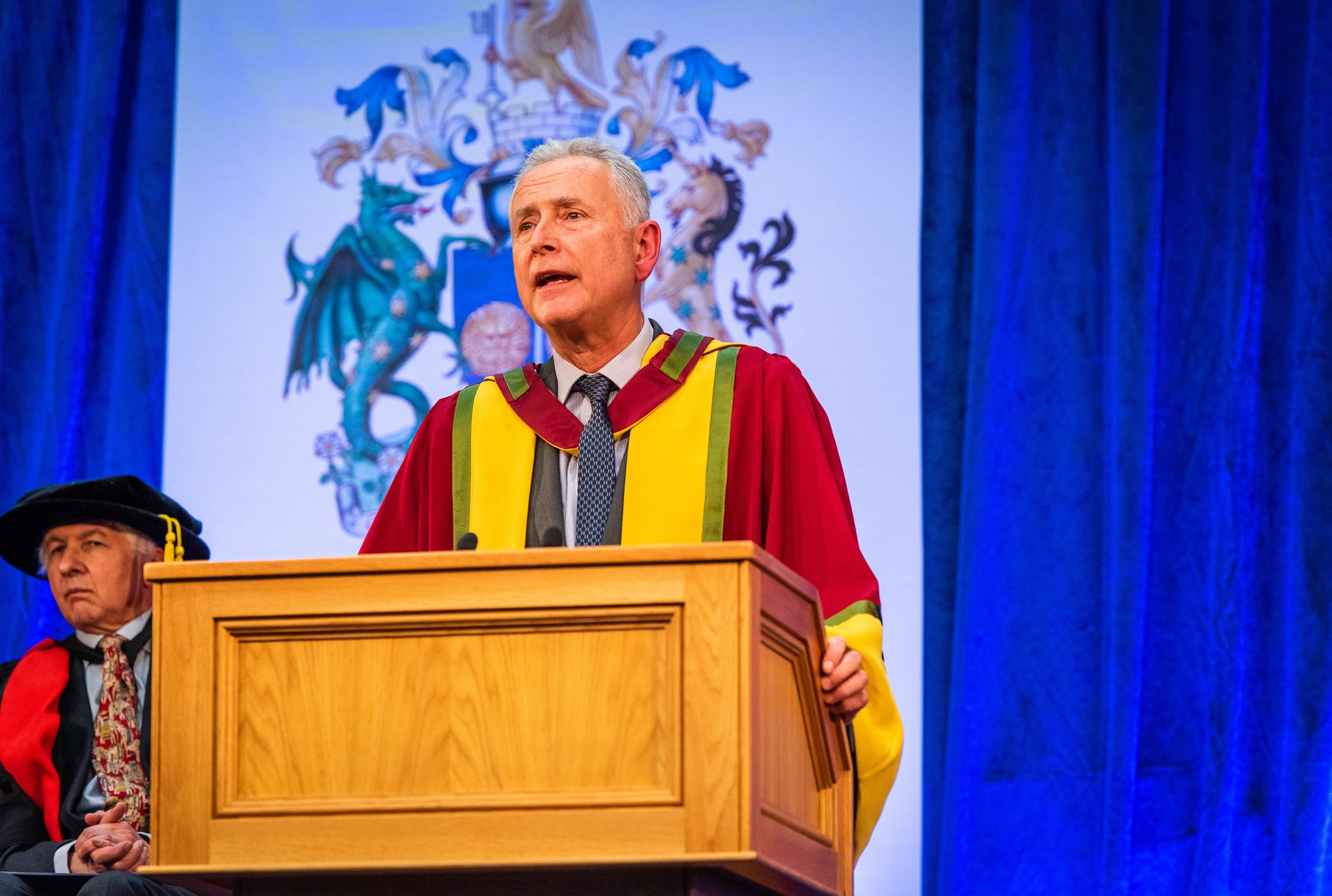
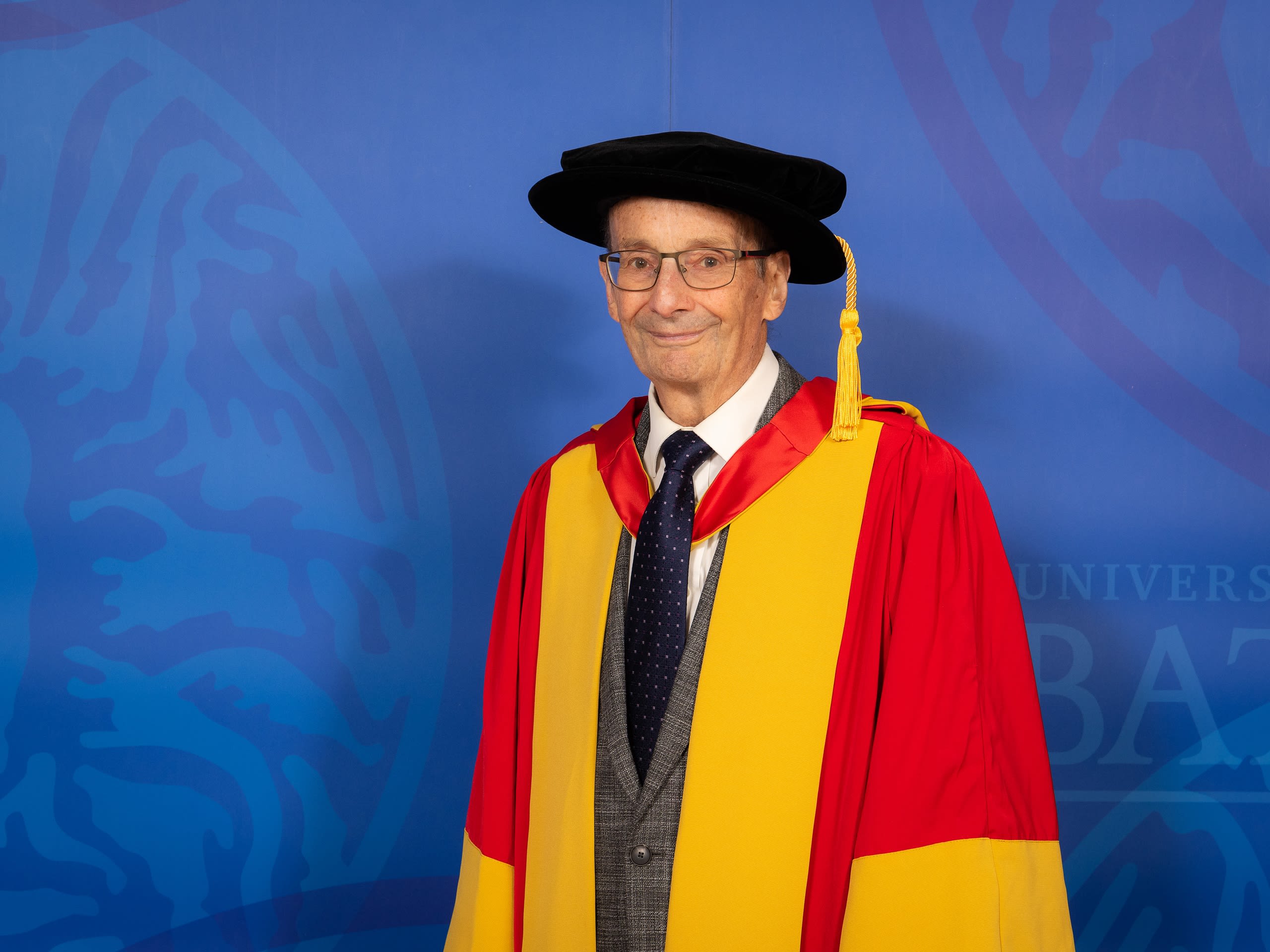

Baroness Barran of Bathwick, founder of domestic abuse charity SafeLives, was awarded the honorary degree of Doctor of the University. Click the photo to read Professor Louise Brown's oration.
Baroness Barran of Bathwick, founder of domestic abuse charity SafeLives, was awarded the honorary degree of Doctor of the University. Click the photo to read Professor Louise Brown's oration.

Inflammation researcher, Professor Luke O'Neill, was awarded the honorary degree Doctor of Science. Click the photo to read the oration by Professor Stephen Ward.
Inflammation researcher, Professor Luke O'Neill, was awarded the honorary degree Doctor of Science. Click the photo to read the oration by Professor Stephen Ward.

Leading social scientist and founder of the UK's first Black Studies degree at Birmingham City University, Professor Kehinde Andrews, was awarded the honorary degree of Doctor of Education. Click photo to read the oration by Professor Richard Joiner.
Leading social scientist and founder of the UK's first Black Studies degree at Birmingham City University, Professor Kehinde Andrews, was awarded the honorary degree of Doctor of Education. Click photo to read the oration by Professor Richard Joiner.

World-leading vaccinologist, Professor Dame Sarah Gilbert, was awarded an honorary degree of Doctor of Science. Read Professor Asel Sartbaeva's oration on her by clicking on the photo.
World-leading vaccinologist, Professor Dame Sarah Gilbert, was awarded an honorary degree of Doctor of Science. Read Professor Asel Sartbaeva's oration on her by clicking on the photo.

Juliet Davenport OBE, Climate Scientist and Founder and Non-executive Director of Good Energy, was given the honorary degree of Doctor of Business Administration. Click the photo to read the oration by Professor Marcelle McManus.
Juliet Davenport OBE, Climate Scientist and Founder and Non-executive Director of Good Energy, was given the honorary degree of Doctor of Business Administration. Click the photo to read the oration by Professor Marcelle McManus.

Professor Sir Richard Catlow, an influential computational chemist, was awarded an honorary degree of Doctor of Science. Click the photo to read the oration by Professor Matthew Davidson.
Professor Sir Richard Catlow, an influential computational chemist, was awarded an honorary degree of Doctor of Science. Click the photo to read the oration by Professor Matthew Davidson.

Applied mathematician Professor Nira Chamberlain OBE was awarded honorary Doctor of Science. Click the photo to read the oration by Professor Chris Budd.
Applied mathematician Professor Nira Chamberlain OBE was awarded honorary Doctor of Science. Click the photo to read the oration by Professor Chris Budd.

Chief Digital Officer and Corporate Vice President at Microsoft, Dr Jacky Wright, was awarded an honorary degree of Doctor of the University. Click on the photo to read Professor Eamonn O'Neill's oration.
Chief Digital Officer and Corporate Vice President at Microsoft, Dr Jacky Wright, was awarded an honorary degree of Doctor of the University. Click on the photo to read Professor Eamonn O'Neill's oration.

Immunologist and Vice President of UCB Pharma, Dr Alastair Lawson, was awarded the honorary degree of Doctor of Science. Click on the photo to read the oration by Professor Jody Mason.
Immunologist and Vice President of UCB Pharma, Dr Alastair Lawson, was awarded the honorary degree of Doctor of Science. Click on the photo to read the oration by Professor Jody Mason.

Scientist, author and broadcaster Professor Alice Roberts, was awarded the honorary degree of Doctor of Education. To read the oration by Professor Matthew Wills, click the photo.
Scientist, author and broadcaster Professor Alice Roberts, was awarded the honorary degree of Doctor of Education. To read the oration by Professor Matthew Wills, click the photo.

Former Chief Executive of WaterAid, Dame Barbara Frost, was awarded an honorary degree of Doctor of Education. Click on the photo to read the oration by Professor Veronica Hope Hailey.
Former Chief Executive of WaterAid, Dame Barbara Frost, was awarded an honorary degree of Doctor of Education. Click on the photo to read the oration by Professor Veronica Hope Hailey.

Dr Claire Craig, former scientific advisor to the Government and current Provost at Queen's College, Oxford, was awarded the honorary degree of Doctor of Science. Read the oration by Professor Eamonn O'Neill by clicking the photo.
Dr Claire Craig, former scientific advisor to the Government and current Provost at Queen's College, Oxford, was awarded the honorary degree of Doctor of Science. Read the oration by Professor Eamonn O'Neill by clicking the photo.

Pioneering cancer drug researcher Professor Barry Potter was awarded an honorary degree of Doctor of Science. Click on the photo to read the oration by Professor Stephen Ward.
Pioneering cancer drug researcher Professor Barry Potter was awarded an honorary degree of Doctor of Science. Click on the photo to read the oration by Professor Stephen Ward.

Leader in the Pharmacy Profession, Trevor Beswick, was awarded an honorary degree of Doctor of Health. Read the oration by Lyn Hanning by clicking on the photo.
Leader in the Pharmacy Profession, Trevor Beswick, was awarded an honorary degree of Doctor of Health. Read the oration by Lyn Hanning by clicking on the photo.

Former Chief Engineer at Airbus, Jeffrey Jupp, was awarded the honorary degree of Doctor of Engineering. Click on the photo to read the oration by Professor Richard Butler.
Former Chief Engineer at Airbus, Jeffrey Jupp, was awarded the honorary degree of Doctor of Engineering. Click on the photo to read the oration by Professor Richard Butler.
Driving high impact research
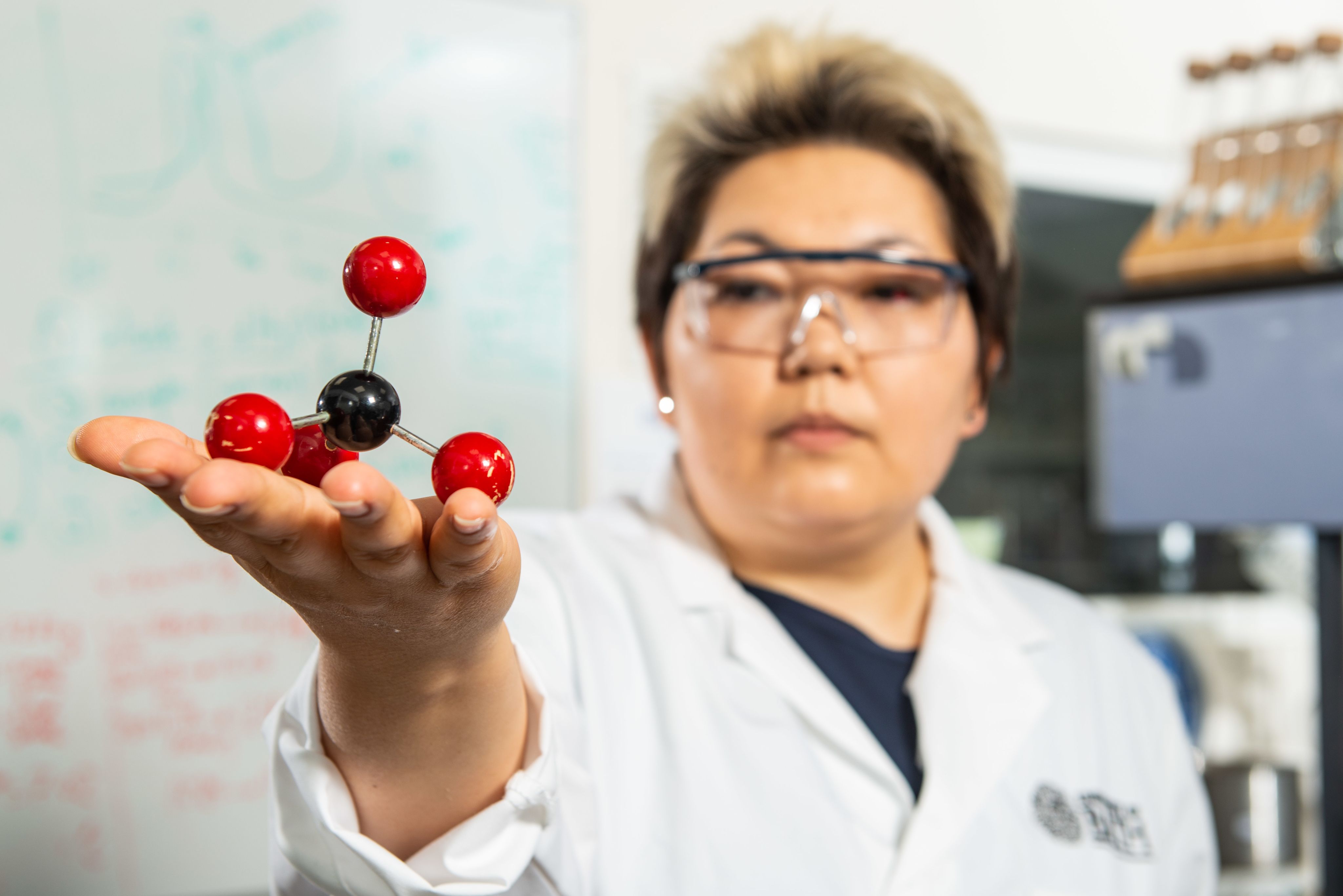
Research Excellence Framework
The delayed Research Excellence Framework (REF) 2021 results were released in May 2022, highlighting how research from the University continues to drive our success. Across the University and our three strategic themes - health and wellbeing, sustainability and digital - we are growing our research strengths.
According to REF2021, 92% of our submitted research activity achieved either 4* or 3* classifications, defined as ‘world-leading’ or ‘internationally excellent’. In addition, 90% of the University’s research outputs (e.g. journal articles, books and patents) were rated ‘world leading’ or ‘internationally excellent’ for originality, significance, and rigour. In terms of having an environment that supports research, 98% of our submitted research activity was graded as ‘world-leading’ or ‘internationally excellent’.
In terms of the impact of the University’s research beyond academia, 93% of the submission also achieved the highest two classifications – with Bath research achieving impact across six continents.
Success in REF is underpinned by the hard work of so many colleagues from around the University – from academic colleagues pioneering research innovations, to professional services teams from Research Innovation Services and the Library helping to secure funding and share outputs.
It is also the result of key strategic investments through which we are building our research influence regionally, nationally, and internationally. Most recently this includes the development of the Institute for Advanced Automotive Propulsion Systems (IAAPS) and the opening of the new School of Management building on campus.
Bath Beacons
Significantly, this year has seen the development of our new Bath Beacons. These multidisciplinary Beacons have been designed to empower our research community to tackle global challenges; building consortia to help unlock large-scale funding.
Since they were launched in November 2021, Bath Beacons have helped to bring together interdisciplinary teams from across to the University focused on finding new approaches to public health, reducing the impact of climate change, and finding new ways for technology to enhance human performance.
Our five beacons focus on: Future fuels; Living well now and by 2050; 21st century public health; Augmented human; and Sustainable and automated future transport research. In addition, two early-career researchers are also developing future Beacons to look at the Value of data and Zero carbon offshore power.
Research Culture Week
Drawing all these research activities together, in June 2022 we held an inaugural Research Culture Week. This week-long series of events and activities aimed to support and celebrate our dynamic research culture here at Bath. During the week, our Public Engagement exhibition initiative - Images of Research 2022 - was unveiled.
Carrot and stick(er): One of the winners of the Images of Research 2022
Research with Impact
We also launched our new ‘Research with Impact’ campaign, showcasing to our external audiences how research from Bath is making a difference across society.
The campaign’s new long-form web features, podcast and videos each tell a story of how Bath research is helping to create a healthier, more sustainable, and connected future for all of us.
“We have a vibrant research community at Bath, and it has been delightful to see such a collective effort, University-wide, working to further enhance our research culture.
"The comprehensive programme of events taking place throughout our dedicated Research Culture Week reflects the pillars and strengths of our research culture.”ly,
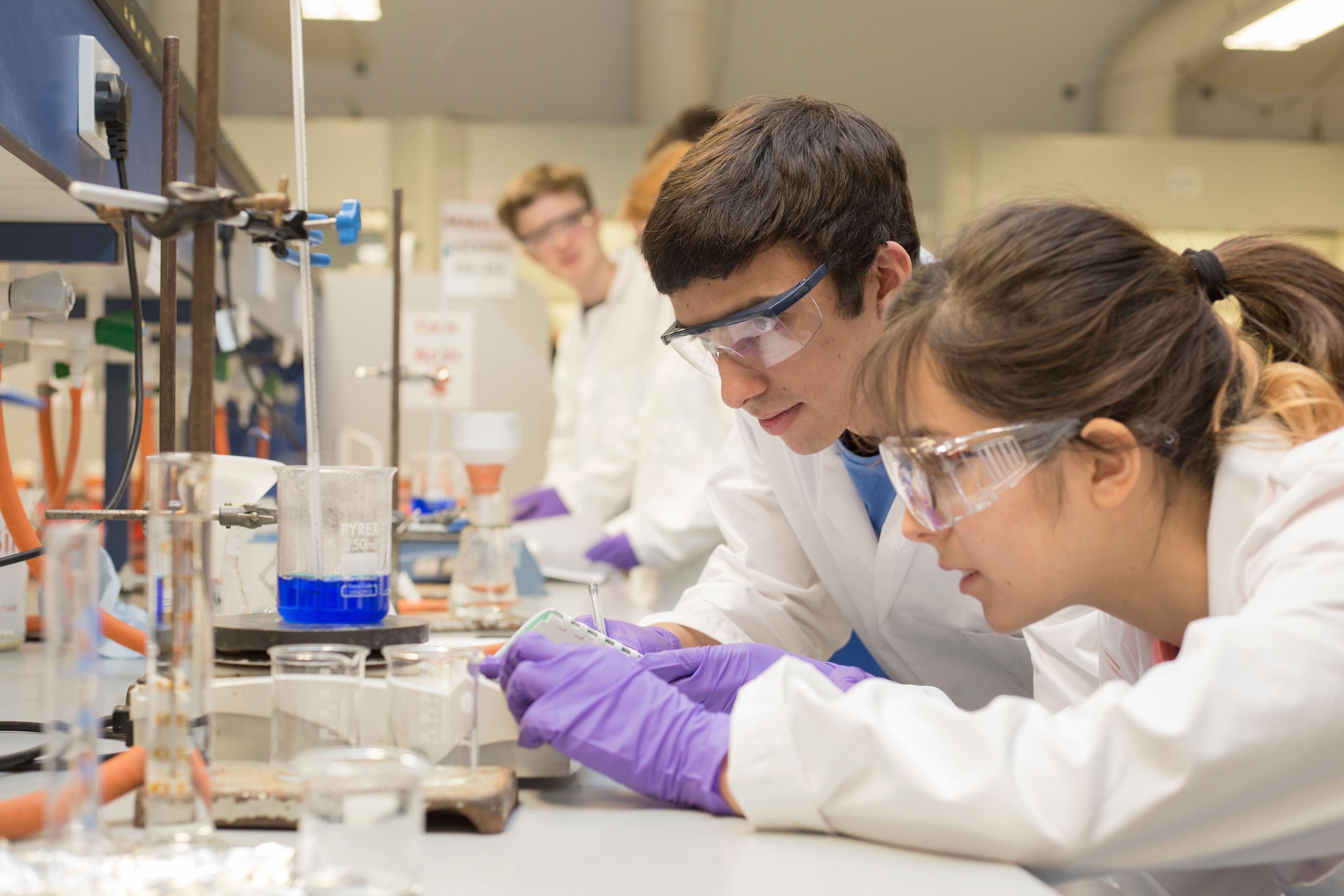
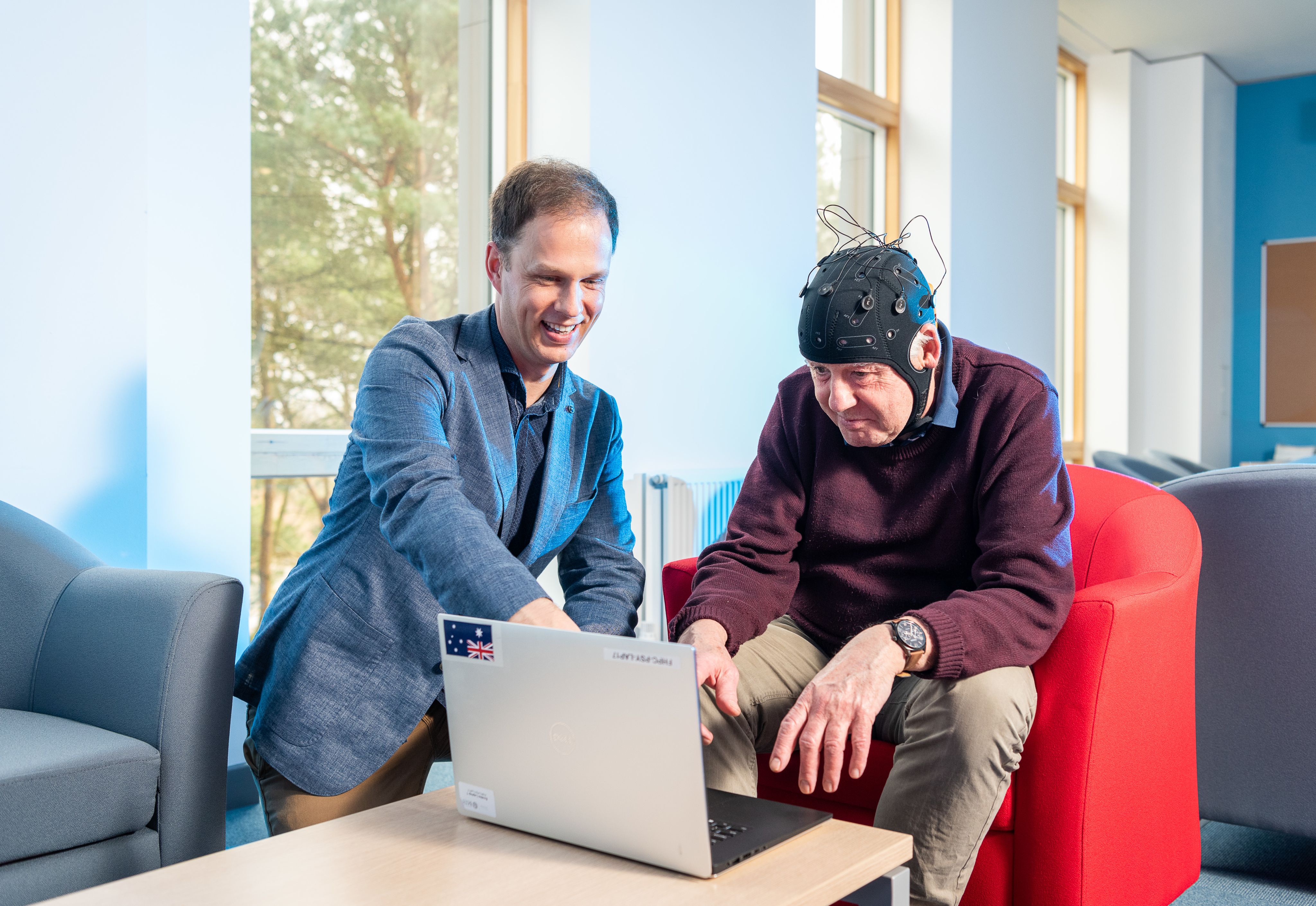
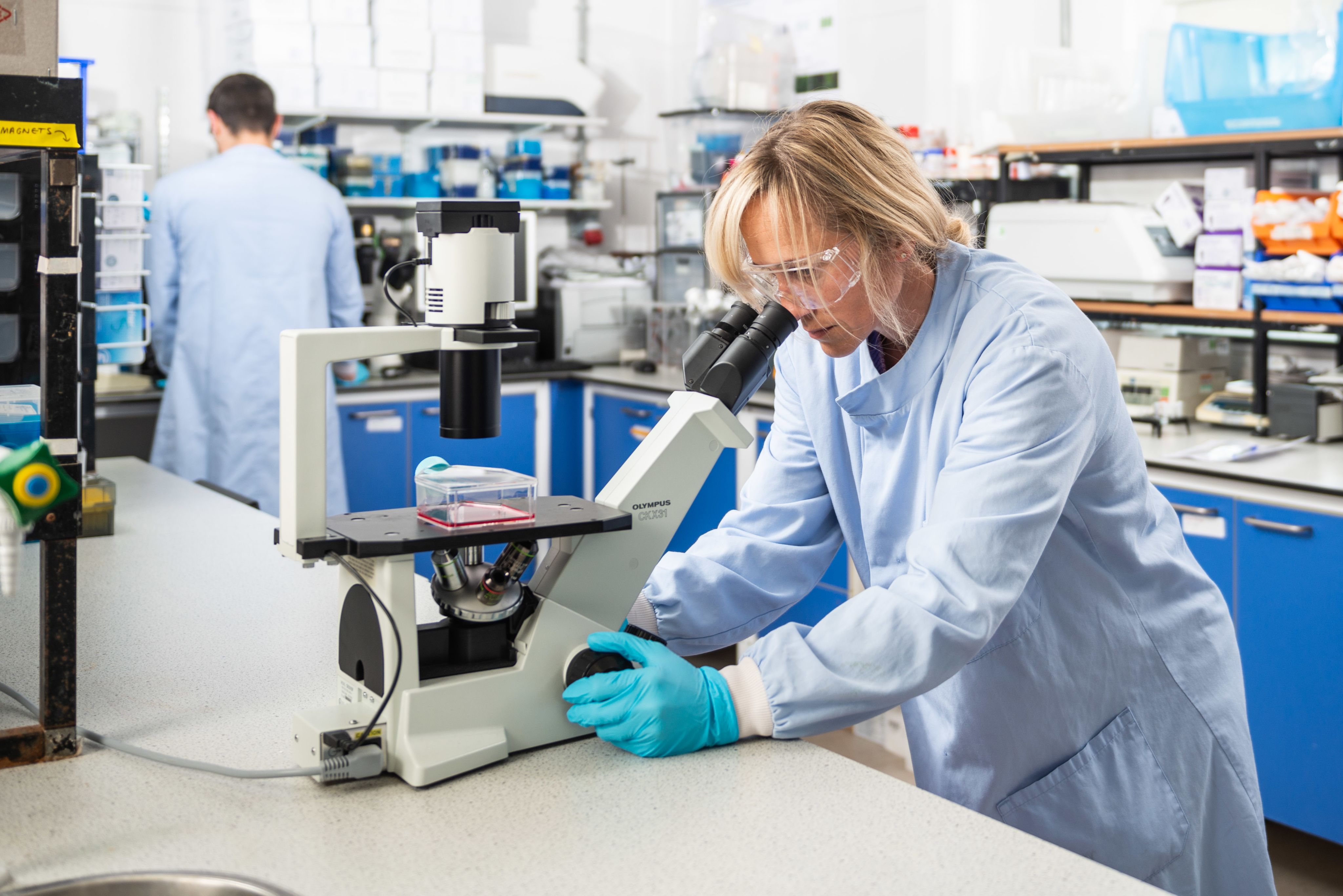
Fostering an outstanding & inclusive community
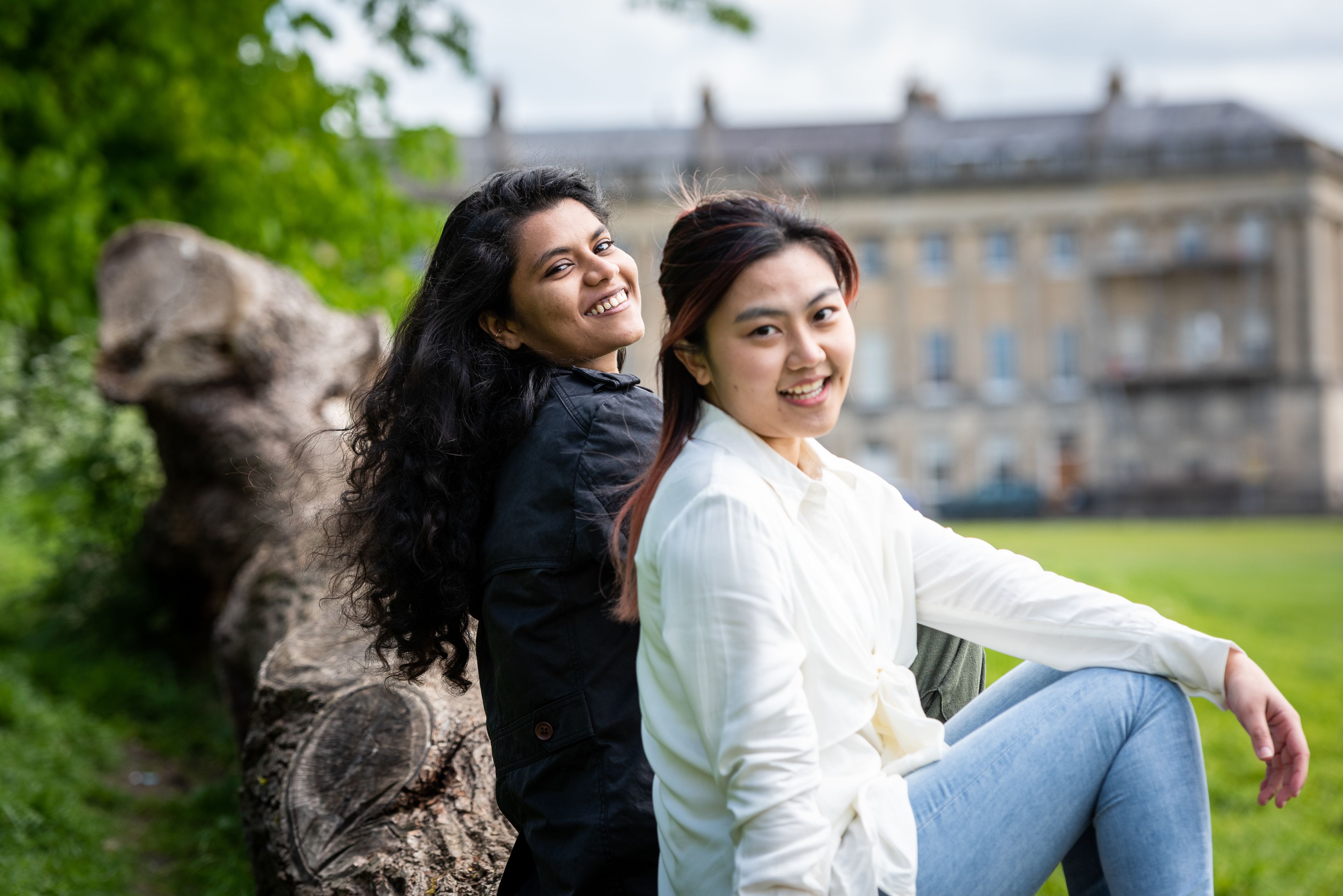
Embracing diversity
In September 2021 the University received an Athena Swan Institutional Silver Award in recognition of its commitment to promoting gender equality among students and staff, one of only 20 institutions to achieve Silver status.
The awarding panel commended the University on achieving 19 out of 21 actions from its 2017 Action Plan, highlighting the increase of female professors at the University from 16.4% to 22.1% since the 2017 Bronze award. This year also saw the Department of Architecture and Civil Engineering welcome two women professors, both internal promotions, the first in the history of the Department.
At the start of 2022 Professor Rajani Naidoo was appointed the University’s first Vice-President (Community and Inclusion) to provide strategic leadership in fostering a thriving, successful and inclusive University community
Throughout the year grassroots activity has been strengthened by revitalising and developing new staff networks including the People of Colour Network, Kaleidoscope, the LGBTQ+ network, aFLAME disability network and the Senior Academic Women’s and Senior Professional Women’s Network. Rather than working in silos or competing, incentives are put in place for networks to collaborate.
An intersectional commemorative committee has been set up consisting of staff and students to co-ordinate events including for Black History Month, International Women’s Day and Pride Month.
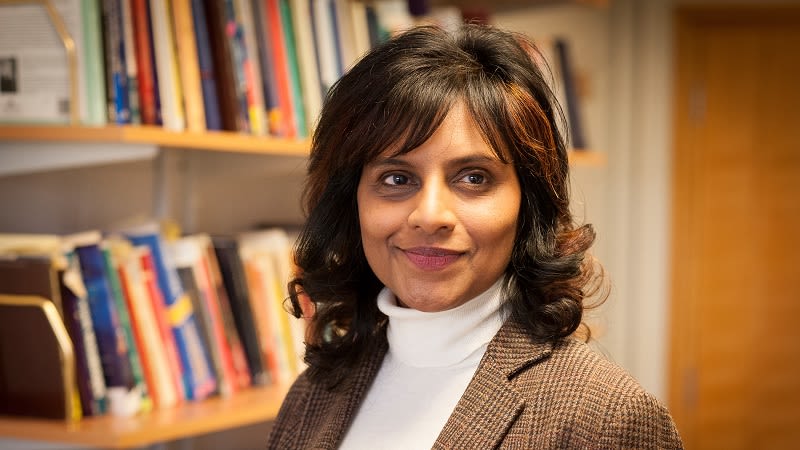
Professor Rajani Naidoo
Professor Rajani Naidoo
Hybrid working
Following a successful pilot scheme of hybrid working for professional services staff with office-based roles, University Executive Board agreed to continue hybrid working arrangements for these roles on an ongoing basis, using the Bath Hybrid Model.
Our model maintains the critical mass needed on campus to sustain a vibrant and dynamic community, whilst enabling office-based staff to have more focused time working away from the office and make better use of digital tools.
The team monitoring ‘Future Ways of Working’ will continue to engage with Heads of Departments and our wider staff community about what is, and is not, working well and to evolve working practices for the benefit of all.
New members of the leadership team
The senior leadership team welcomed several new colleagues to Bath this year, including Deputy Vice-Chancellor Professor Phil Allmendinger, Pro-Vice-Chancellor (Research) Professor Sarah Hainsworth, Pro-Vice-Chancellor (Education) Professor Julian Chaudhuri, Director of Development & Alumni Relations Gordon Cox, Director of Education & Student Services Ian Blenkharn, Director of Student Support and Safeguarding Alice Ludgate, and Chief Information & Digital Officer Chris Youles.
New campus developments
In June the University saw two major projects come to fruition with the opening of the new School of Management building on Claverton Down Campus, and The Institute of Advanced Automotive Propulsion Systems (IAAPS) at the Bristol & Bath Science Park.
Both purpose-built facilities significantly enhance the University’s capabilities.
The School of Management building co-locates all School staff, and includes nine lecture theatres and an auditorium as well as a laboratory, entrepreneurship and employability spaces and The Pavilion Café.
The IAAPS facility allows for a host of large-scale commercial collaborations and ground-breaking research projects, developing future generations of clean and efficient propulsion systems.
The move further cements IAAPS’ position as a global centre of excellence, delivering transformational research and impact and supporting the wider transport industry in the transition to net zero.
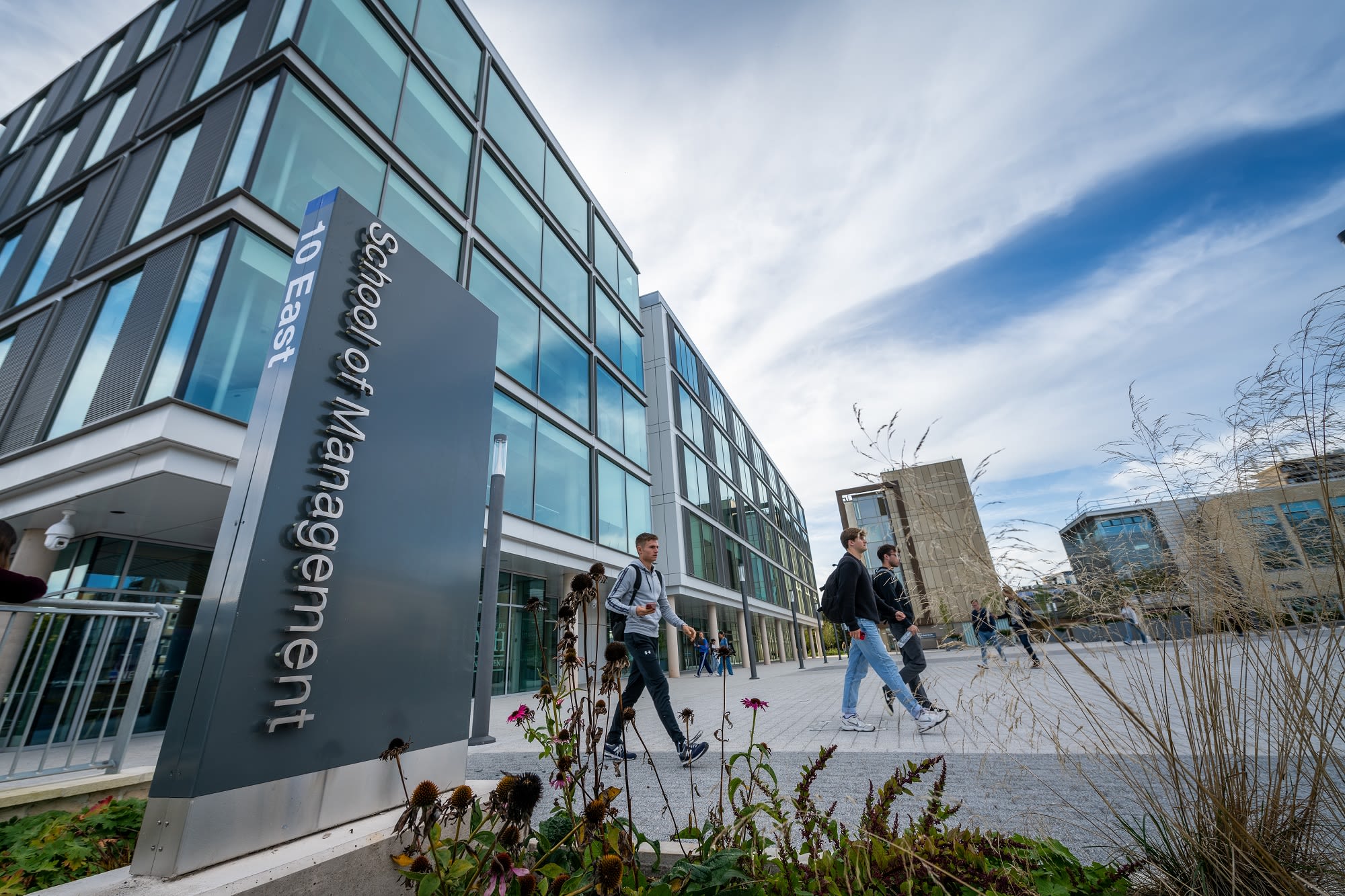
Climate Action

In 2021/22 the University made significant changes as part of its whole institution response to the Climate Emergency, supported by the Climate Action Team working with colleagues across the University.
Key among these were updating our travel policy for all staff, giving more sustainable travel options preference and making it easier to book low-carbon transport.
We also introduced our Sustainable Food Commitment to reduce the environmental impact of food provision across campus, with a focus on sustainable procurement of food and drink, reducing waste, and reducing meat consumption, particularly of ruminant meat.
In a first for a UK University, all incoming students had the opportunity to take a Carbon Literacy course, giving an evidence-based understanding of climate change.
We also, for the first time, ran an all-staff and all-student survey on climate action at the University.
Engagement was high in both groups, with strong support for the University taking action.
The data will be used to help further inform the University’s approach to climate change, and a follow-up series of blog posts delved into the data and explained context across the organisation’s approach.
All of these changes help move the University further towards our commitments under the Climate Action Framework.

Sport
Our strong sporting tradition is an important part of our community.
In the Birmingham 2022 Commonwealth Games athletes who train, study or studied at the University of Bath achieved 33 medals between them – seven gold, 17 silver and nine bronze.
Forensic psychology student Holly Munro was part of the Queen's Baton Relay, carrying the baton when it came through the Welsh city of Newport, before later playing hockey for Wales in the Birmingham 2022 Games.
Sporting scholar Tom Dean became Team England’s most decorated swimmer at a single Games with six silver medals and one gold.
Also this summer, in her Wimbledon debut, Team Bath Tennis ace Alicia Barnett got through to the mixed doubles quarter-finals alongside partner Jonny O’Mara. She has now risen the ranks to become the new British number one women’s doubles player after winning first WTA 250 title with Olivia Nicholls in Canada.
Our state-of-the-art sports and fitness facilities are accessible for our students and staff and are heavily used by a range of school and community groups.
All our students get a free Sports Pass which allows access to a host of facilities at the Team Bath Sports Training Village including our London 2012 Legacy Swimming Pool; tennis, squash and badminton courts; athletics track; astro pitches; and indoor sports hall.
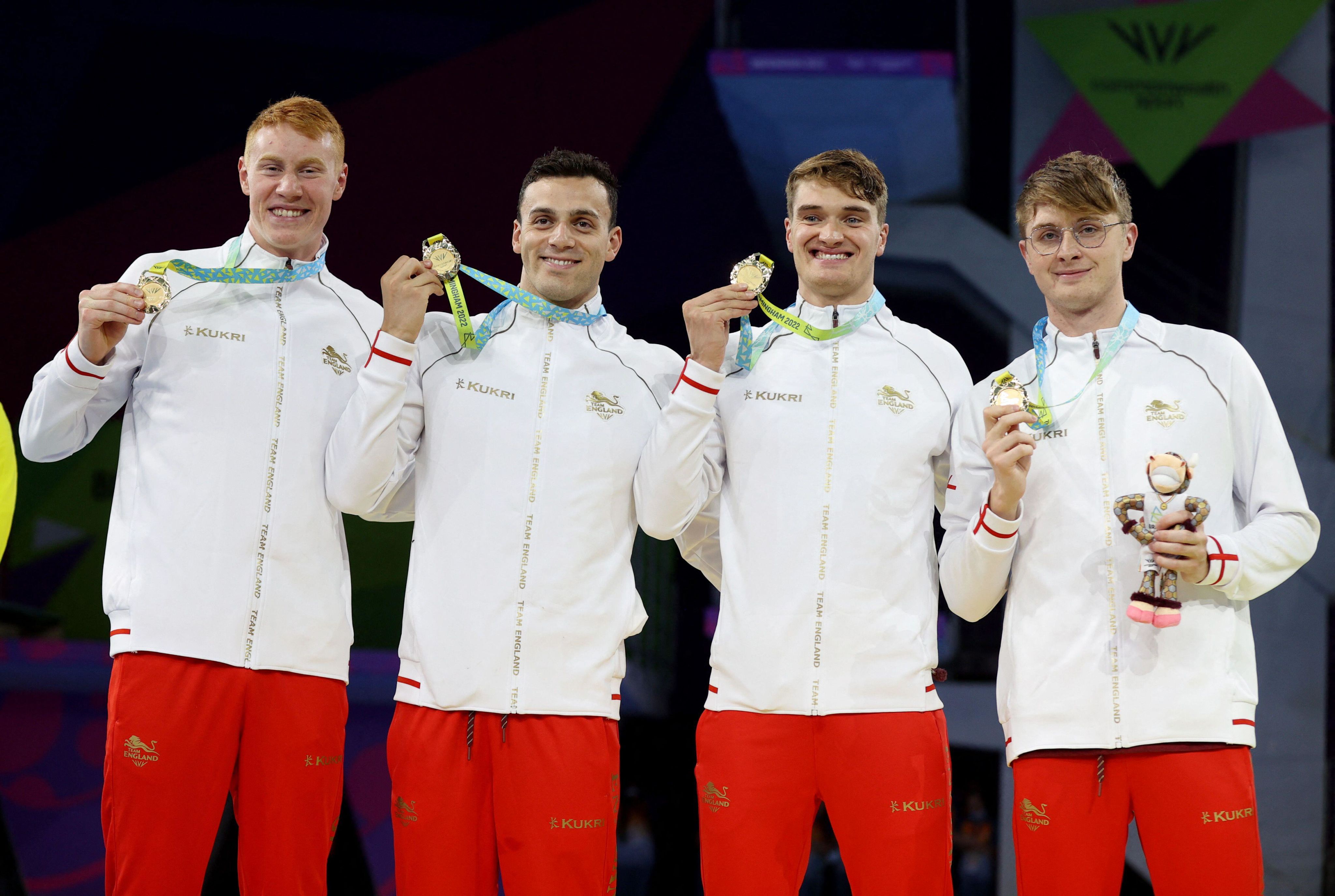
British Swimming Performance Centre Bath swimmers Tom Dean (left), James Guy (second left) and Brodie Williams (right) with James Wilby after winning 4x100m men’s medley relay gold at the Birmingham 2022 Commonwealth Games. Credit: REUTERS/Stoyan Nenov.
British Swimming Performance Centre Bath swimmers Tom Dean (left), James Guy (second left) and Brodie Williams (right) with James Wilby after winning 4x100m men’s medley relay gold at the Birmingham 2022 Commonwealth Games. Credit: REUTERS/Stoyan Nenov.
Team Bath tennis ace Alicia Barnett reached the Mixed Doubles quarter-finals in her Wimbledon debut in July.
Team Bath tennis ace Alicia Barnett reached the Mixed Doubles quarter-finals in her Wimbledon debut in July.
Enhancing strategic partnerships
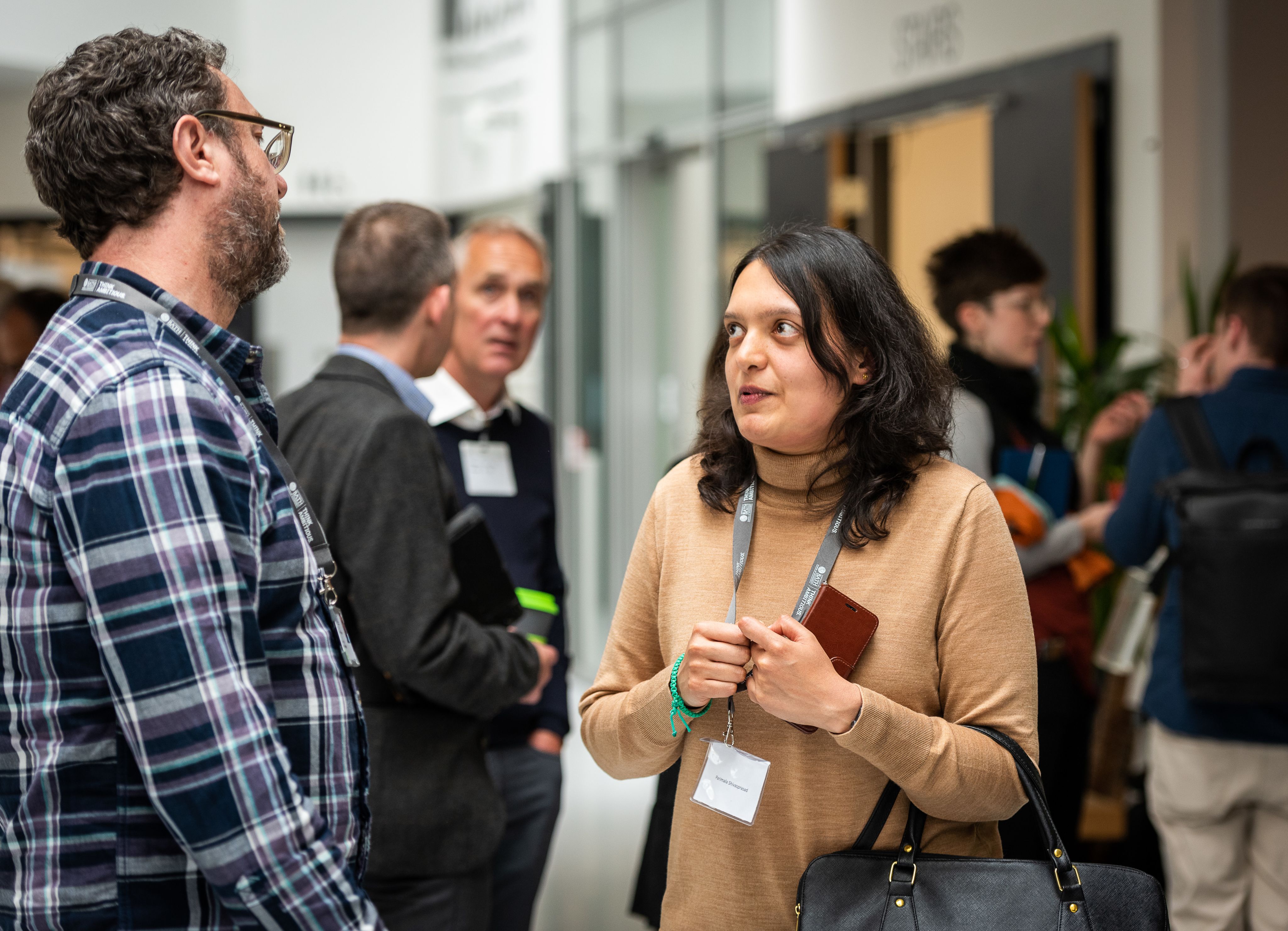
Building upon our strong existing partnerships and forming valued and lasting relationships with external organisations and people is a key pillar of our overarching University strategy.
This work touches almost everything we do – from fostering new research and industrial partnerships, to drawing on the expertise of distinguished visiting professors from around the world and engaging more closely with our community partners in and around Bath and our region.
Enterprise Day
In April, we held our first Enterprise Day. Bringing together students, researchers, alumni, entrepreneurs and representatives from external partners including SETSquared, the National Centre for Universities and Business, and the Knowledge Transfer Network, the event sought to spark new connections in our innovation ecosystem with a selection of talks, panel discussions, and networking sessions, alongside a pop-up showcase of start-ups.
Academic speakers included Professor Dimo Dimov whose research created the Social Enterprise and Innovation Programme, which has generated £3.3 million investment in the South West, and Professor Marianne Ellis, Professor of Bioprocess & Tissue Engineering, who co-founded Cellular Agriculture.
Professor Davide Mattia spoke about Naturbeads, a spinout he co-founded, which this summer secured a £1.3M investment to scale up its work into replacing harmful plastic microbeads.
Spinout successes
Other notable enterprise successes this year include the spinout of SmartWound Limited, set up in partnership with University Hospitals Bristol and Weston NHS Foundation Trust, which is creating a simple test for diagnosing bacterial infections in wounds, based on technology developed in the Department of Chemistry.
The company’s technology has the potential to reduce the length of hospital stays, resulting in more streamlined and cheaper care pathways for patients.
Dr Andrew Cookson and Dr Jeff Clark, both from the Department of Mechanical Engineering, secured funding from Innovate UK to start the spinout journey of a company which aims to improve diagnosis of pulmonary hypertension by using machine learning to screen pulmonary angiograms.
Gen3D, a 3D printing design and software consultancy founded by Dr Vimal Dhokia, Dr Wesley Essink, Dr Joseph Flynn and alumni Dr Steven Goguelin and Charles Bailey, was acquired by US computational science and AI business Altair.
CiteAb, founded in 2009 by Bath chemist Dr Andrew Chalmers and graduates David Kelly and Adam Pope, received the Queen’s Award for Enterprise (Innovation) in April. The company is a leading market data provider for life science suppliers and tool for researchers to find products that work for their experiments.
Global chairs
Alongside our enterprise efforts, our work to grow academic alliances continued in 2022. Our Global Chair scheme, managed by the International Relations Office, invites leading international visiting professors to help build high-profile partnerships in research and practice, specifically within the themes of sustainability, health and wellbeing, widening participation, and peace and security.
Four new Global Chairs were appointed for 2022-23.
Professor Chuyang Tang, from the University of Hong Kong, is a world expert in environmental engineering, membrane technology, desalination and water reuse. Professor Tang is hosted by Dr Ming Xie and Professor John Chew in the Department of Chemical Engineering.
Professor Tianhong Cui is director of the Technology Integration and Advanced Nano/microsystems Laboratory at the University of Minnesota. His scholarship focuses on healthcare and environment applications of micro electrical mechanical systems. He is hosted by the Department of Electronic & Electrical Engineering.
Professor Carolyn Ann Emery, from the University of Calgary, is an epidemiologist and physiotherapist, and the most highly published author over the past 30 years in the field of youth sports injury. Professor Emery is hosted by Professor Keith Stokes and the Centre for Health and Injury and Illness Prevention in Sport.
Professor Konstantina Nikita, of the National Technical University of Athens, carries our cross-disciplinary research in engineering and medicine. Professor Nikita will be hosted by Dr Despina Moschou in the Department of Electronic and Electrical Engineering to form multiple research collaborations in at least three of Bath’s key research centres.
Local engagement
Engagement with our civic and community partners also grew in 2022. In June, a wide-ranging audience came together for a public information event to update key stakeholders, including people living in Bath and the region, the chance to hear about the University’s strategy and partnership working, and to pose questions to a panel of our senior leaders.
Attendees were also updated on Our Shared Future research projects. These include work commissioned by Bath & North East Somerset Council (B&NES) to understand food insecurity in the region, and to support decarbonising of local housing stock. A research project to create a ‘digital twin’ of The Roman Baths is also ongoing – this involves using wireless sensors to build a profile of how the monument is used and understand how it can be protected for the future.
Research partnerships
The £17M Innovation Centre for Applied Sustainable Technologies (iCAST) was officially launched at its new base in the Carriage Works in Swindon in November 2021.
iCAST is a unique collaboration set to deliver agile innovation in green, sustainable technologies. Bringing together experts across all the innovation stages, it focusses on bringing together industry and academia to translate discoveries into commercial application.
Led by the University's Centre for Sustainable and Circular Technologies (CSCT), the Centre is a collaboration between the Universities of Bath and Oxford, the High Value Manufacturing Catapult’s Sustainability Partnership (National Composites Centre, and Centre for Process Innovation) innovation experts at SETsquared, Local Enterprise Partnerships, investors and the companies with which iCAST will be working.
In the same month, the CSCT also announced it is to be a major partner in the £20m Industrial Decarbonisation Research and Innovation Centre (IDRIC) will bring industry and academia together to slash carbon emissions.
Virtually based at Heriot-Watt University’s Edinburgh campus, IDRIC will work closely with the UK’s major industrial clusters to address the challenges of industrial decarbonisation alongside more than 140 partners as part of a drive to create the world’s first net-zero emissions industrial cluster by 2040 and four low-carbon clusters by 2030.
“IDRIC is such a wonderful project and we are delighted that CSCT will be able to contribute its expertise. Coupled with the recent launch of iCAST, the CSCT continues to grow and develop its reputation as a world-leading centre for sustainability research.”
As part of one of the Bath Beacons at the University of Bath entitled Future Fuels: Hydrogen and its Carriers, Professor Tim Mays (Chemical Engineering) is to lead new research into UK take-up of greener hydrogen-based fuels.
Professor Mays will become one of two UK Hydrogen Research Co-ordinators who aim over the next six months to establish national Centres of Excellence based at their home institutions.
“This project, aligned to our primary institutional research theme of sustainability, supports the strategic pillars of our University strategy, including driving high-impact research and enhancing strategic partnerships. Moreover, it lays the foundation for the creation of a UK centre of research excellence in hydrogen and alternative liquid fuels to be based at Bath.”
